CRACKING THE CODE/ Meet Dimension founder Tejas Ravishankar P.24
RETHINKING RECRUITMENT/ Christian Eid explains why he is building NoBueno P.21

WE GOT FUNDED/ The stories behind fundraising wins P.64

CRACKING THE CODE/ Meet Dimension founder Tejas Ravishankar P.24
RETHINKING RECRUITMENT/ Christian Eid explains why he is building NoBueno P.21

WE GOT FUNDED/ The stories behind fundraising wins P.64
game P.28
April 2023
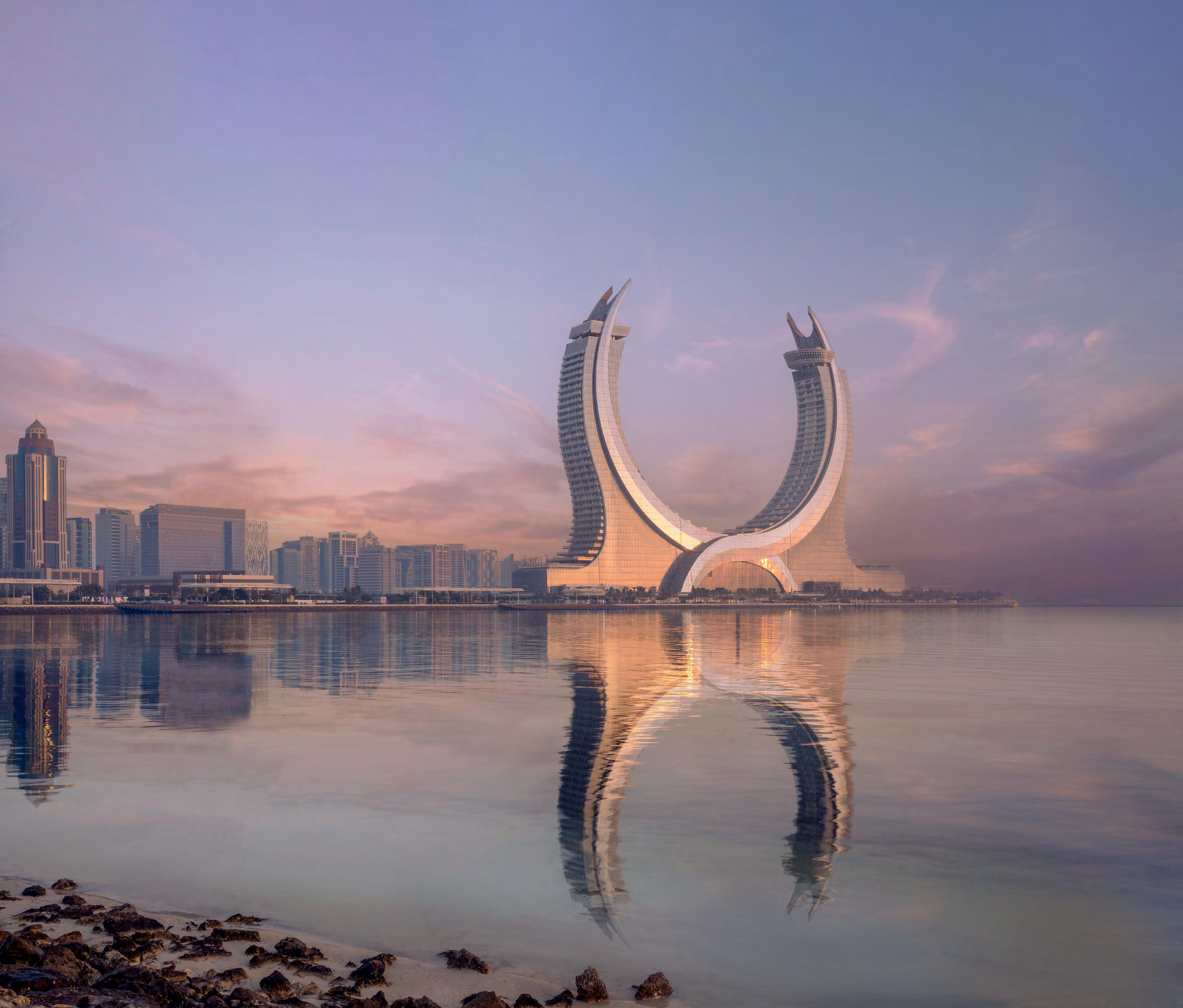

VIRTUAL EVENT
2 May 2023 | 2.00 PM GST
To celebrate women business leaders across Eastern Europe, Middle East and Africa, Mastercard is partnering with Entrepreneur Middle East to stage the Women SME Leaders Awards 2023.
In its second edition, the Women SME Leaders Awards is inviting women to nominate themselves and their organizations to be recognized and rewarded for their achievements and accomplishments through the past year.
There are no costs for attending or nominating at this event.

P.28
KHALED AL HURAIMEL

The Group CEO of BEEAH has seen his enterprise grow by 10x in the last ten years. Now, he’s hoping to see it grow by another 10x in the next ten years.
16-year-old Tejas Ravishankar is hoping to harness (and celebrate) the magic of coding through his software developer experience platform, Dimension.





↑ Recognizing sustainability and technology as the pillars for a modern economy, BEEAH GROUP invested in a comprehensive, full-circle strategy for the future, and expanded into the fields of renewable energy, green mobility, transport, education, and technology.
59 Fashion meets function
Former Saudi Arabian bodybuilder
Somaiah Al Dabbagh wants women to feel comfortable in their skin through her size-inclusive luxury activewear brand.
64
The stories behind the recent fundraising successes seen by MENA-based startups COFE and Nuqtah.
68 In focus
A roundup of up-and-coming startups in the Dubai-based Mohammed Bin Rashid Innovation Fund accelerator program that you should be keeping an eye on.
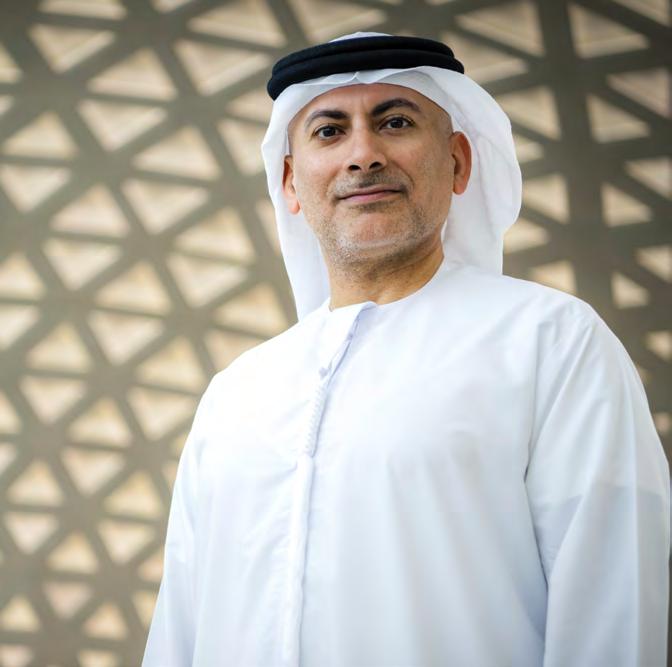
45 The hustle is real Nested VFX Founding Partner and CEO Samer Asfour shares lessons learnt through the course a three-year-long entrepreneurial journey.
49 Building talent solutions to attract, retain, and evolve
Aspexx Digital co-founders Peter Mackintosh and Jack Kidd give the lowdown on crafting the perfect employee experience to attract, retain, and evolve your prospective and current talent.
52 It all started with a “no.” (But it led to a US$1.5 billion story in the end!)
An excerpt from John Mullins’ new book, Break The Rules! The 6 Counter–Conventional Mindsets Of Entrepreneurs That Can Help Anyone Change The World.
56 Caviar dreams (on an instant noodle budget)
Behind every success story lies years of commitment, diligence, and the maturity to embrace both failure and triumph alike, says JRN Consultancy co-founder Ruwaida Abela Northen.
EDITOR IN CHIEF Aby Sam Thomas aby@bncpublishing.net
CEO Wissam Younane wissam@bncpublishing.net
DIRECTOR Rabih Najm rabih@bncpublishing.net
CREATIVE LEAD Odette Kahwagi design@bncpublishing.net
MANAGING EDITOR Tamara Pupic tamara@bncpublishing.net
FEATURES WRITER Aalia Mehreen Ahmed aalia@bncpublishing.net
REGIONAL DIRECTOR Mahdi Hashemi mahdi@bncpublishing.net
HEAD OF INNOVATION
Sarah Saddouk sarah@bncpublishing.net
GROUP SALES DIRECTOR – B2B GROUP Joaquim D’Costa jo@bncpublishing.net
COLUMNIST Tamara Clarke
CONTRIBUTING WRITERS Samer Asfour, Fida Chaaban, Christian Eid, Jack Kidd, Peter Mackintosh, John Mullins, Ruwaida Abela Northen, Ghady Rayess, Shaun Robison
SUBSCRIBE
Contact subscriptions@bncpublishing.net to receive Entrepreneur Middle East every issue
COMMERCIAL ENQUIRIES sales@bncpublishing.net
ENTREPRENEUR.COM
Access fresh content daily on our website







I feel like the reason why anger gets such a bad rep in the workspace is because of its potential to become disrespectful and thereby make the environment we spend an estimated one-third of our lives in toxic as hell. And while it certainly should not be allowed to go unchecked and without fear of consequence, I believe that it’s important to recognize that anger is as human an emotion as joy. And so, if we’re willing to make space for the latter in our workplaces, we need to learn to do the same for the former -or any other feeling, really- as well.
As I see it, the key to making anger an emotion for good in the workplace lies in how it’s displayed, as well as in what happens after it makes its presence felt. If, for instance, the anger can be properly justified, then what needs to happen is a careful (and constructive) conversation that should lead to the necessary solutions being put in place for the same. On the other hand, if one’s emotion is misplaced, then the reaction to it needs to be studied but empathetic- and the instigator also needs to be open enough to see the error in their judgement or reaction.
Of all the emotions that stand the chance of being displayed at work, anger seems to be the one that most of us are absolutely wary of. Not only are we absolutely apprehensive of facing the brunt of another’s outrage, many of us also shy away from exhibiting any ire whatsoever even if the situation demands it.

It’s easy to understand why though- most of us have been trained to believe that airing our aggravations in the workplace is unprofessional and not conducive to a healthy company culture. But how wholesome can a work environment be when it’s one where you have to keep mum and carry on a charade even when your sensibilities are being assaulted on a day-to-day basis?
A healthy workplace, to me, would be one where every member, regardless of rank, age, or gender, feels safe and confident in expressing what aggravates them, and, perhaps more importantly, also be heard with the common goal of making things better for everyone involved.
Personally, my team and I have a penchant for finding the humor in our outbursts after our nerves have suitably calmed; they often morph into treasured memories down the road. There’s a special kind of strength and support to be found in teams that like to keep things real- and losing your cool is a part of that.
Aby Sam Thomas Editor in Chief @thisisaby aby@bncpublishing.net



Healthcare stakeholders came together at The Shift to lay the groundwork for the UAE Ministry of Health and Prevention’s Innovation Strategy for 2023-26
 by AALIA MEHREEN AHMED
by AALIA MEHREEN AHMED
Future-oriented gameplans that can elevate the UAE’s healthcare ecosystem’s overall performance formed the crux of discourse at The Shift, a special event staged by the country’s Ministry of Health and Prevention (MOHAP) at its headquarters in Dubai on Tuesday, February 28, 2023. Initiated as an event to lay the groundwork for MOHAP’s innovation strategy for 2023 to 2026, The Shift brought together multiple stakeholders from across the UAE healthcare ecosystem to discuss how the country can cement its position as having one of the world’s best healthcare sectors.
The Shift’s itinerary was drawn largely from the words and vision of H.H. Sheikh Mohammed bin Rashid Al Maktoum, Vice President and Prime Minister of the UAE and Ruler of Dubai, who was reported to have recently said, “Our goal is to create a vibrant global healthcare hub that serves not only the needs of the people of our nation, but also caters to the growing requirements of our vast region. Aligned with our goal of making the UAE one of the world’s best places to live and work, we are on a constantly evolving journey to raise standards of human development and welfare.”
In his keynote address at The Shift, Saqr Al Hemeiri, Chief Innovation Officer and Director of Strategy and the Future at MOHAP, touched upon how securing the future of the country’s healthcare sector will need a collaborative effort from private and public players within the ecosystem. “Today, we’re starting on a new healthcare agenda for 2023-26, and this will involve facing challenges that we may not have faced before,” Al Hemeiri said. “This means we will have to better adapt to change. However, tackling and finding the solution to such hurdles cannot be done in silos, which is why events like The Shift are important for the ecosystem.”
The event also saw key stakeholders from the UAE’s healthcare sector commenting on how their industry could be revolutionized. In a panel discussion moderated by Sally Mousa, Dr. Erik Koornneef, Director of Research and Innovation, Pure Health, Ghada Sawalmah, CEO, Gargash Hospital, Dr. Shadab Khan, Director of Artificial Intelligence and Applied Sciences, G42 Healthcare,
Rania Ashraf, Director of Government Affairs and Policy, Janssen GCC, and Khaldoon Bushnaq, co-founder and CEO, Alma Health, shared their viewpoints on what a new era of healthcare could look like.


“I think the challenges that we will face will be all about humans, all about behaviors,” Dr. Koornneef said. “So, this event is called The Shift, and I believe the shift in the future of healthcare will be much more focused on wellness instead of illnesses.” Dr. Koornneef then also spoke of how new technological innovations such as ChatGPT, a chatbot powered by artificial intelligence (AI), can prove to be a major catalyst in furthering the UAE’s innovation strategies in healthcare.
Adding to this point was G42 Healthcare’s Dr. Khan, who iterated how AI can reimagine the way healthcare services are provided to the end users. “I believe AI will be massively important in improving care outcomes,” Dr. Khan said. “We know that the World Health Organization estimates that there will be a shortage of 10 million care professionals by 2030. So it is imperative that we figure out a way to support our care professionals with all the technological tools they need to deliver care better and faster.”
Janssen GCC’s Ashraf then steered the conversation towards the lingering need to ensure preventative measures exist within healthcare. “Off the top of my head, I can tell you that in the case of cancer, a delay in diagnosis by just four weeks can lead to an increase in the rate of mortality, across at least seven to eight cancer types…just four weeks!” Ashraf added. “If you look at diabetes patients- uncontrolled diabetes leads to
a 20% increase in cardiac events. That’s one in five patients, and we’ve got a lot of diabetes patients in the UAE. So I think there’s no going away from trying to include prevention in all of its methods. Whether it is prevention before the disease happens, or prevention of consequences by ensuring that we do early detections.”
On his part, Alma Health’s Bushnaq spoke at length about how the mindset of patients in the country is changing towards innovations in the healthcare space, particularly owing to their proven efficiency during the peak of the COVID-19 pandemic. “Something we’ve noticed at Alma Health, as a digital healthcare provider that is fully licensed in the UAE, is that patients have the same expectations from the growing digital healthcare providers in the country as they do from the brick and mortar medical entities,” he said. “So it is not that they want their medications to be provided as quickly as possible or consult a doctor as quickly as possible- what they seek is improved clinical outcomes. This is exactly what their expectations are!”
Gargash Hospital’s Sawalmah, however, pointed out that while this shift in mindset is promising, there are also many patients who still remain unsure about the benefits
of digital health. “Having the patient understand how this is a benefit is still a challenge,” Sawalmah added. “There is this perceived fear that the use of machines and AI can just go the other way! And then you have statements by Elon Musk who has said that we might need to slow down on the development of AI, adding to that fear. That is what is in the faces of everyone, and that is what the patient reads. But we need the patient -who is the most important person in this scenario- to play a proactive part in the adoption of telemedicine, AI tools, and the like. That is what will lessen the costs and push us to the next level of collaboration- where it’s not just between the public and private sectors, but also with the general public.”
In a neat implementation of Sawalmah’s concern, following the event’s proceedings, attendees of The Shift were invited to participate in roundtable discussions looking into the various considerations that MOHAP should keep in mind for its new innovation strategy. The conversations that ensued touched upon topics ranging from the UAE’s legislative system and policies when it comes to healthcare, to the education and training of the next generation of healthcare workers. mohap.gov.ae
TACKLING AND FINDING THE SOLUTION TO SUCH HURDLES CANNOT BE DONE IN SILOS, WHICH IS WHY EVENTS LIKE THE SHIFT ARE IMPORTANT FOR THE ECOSYSTEM.↑ SAQR AL HEMEIRI, Chief Innovation Officer and Director of Strategy and the Future at MOHAP
• V Hotel Dubai’s party suite promises to be the ultimate des-res
• The grand Amazing Room as the perfect event venue with illumining walls
• A hotel that blurs the lines between work and play


• Retro-futuristic, picture-perfect guest rooms for friends to party under one roof
• Located in the heart of Dubai and by the banks of Dubai Water Canal
T: +971 4 436 6666 thevhoteldubai.com

 V Hotel Dubai, Curio Collection by Hilton Al Habtoor City, Sheikh Zayed Road, Dubai, UAE
V Hotel Dubai, Curio Collection by Hilton is fully eligible for Hilton Honors rewards programme
V Hotel Dubai, Curio Collection by Hilton Al Habtoor City, Sheikh Zayed Road, Dubai, UAE
V Hotel Dubai, Curio Collection by Hilton is fully eligible for Hilton Honors rewards programme




 by CHRISTIAN EID
by CHRISTIAN EID
Iknow nothing about recruitment. Wait, let me rephrase. I know a lot about building teams, but nothing about traditional recruitment per se. But on the things I do know, I’ll begin with the obvious reality that nobody, and I do mean nobody, is happy with their recruitment process or tools. Leaders, hiring managers, talent acquisition teams, headhunters, and recruiters -as a whole- don’t hold back on their discontent with the status quo. (Ask them!) And if that weren’t enough, try speaking to job seekers. How did it feel the last time you looked for a job? Total rubbish!
Now, it would be naive to launch a startup just because something doesn’t work well. Very few things work well, and just because there’s friction, it doesn’t immediately warrant diving into and going down the road of ridiculous sacrifice. But, there’s something else that really bugged me. The more I unraveled recruitment, the more the problem became critical. The process, even if digitized today, is broken, and it has remain unchanged for centuries. And the result of archaic processes means that today there is extreme bias in how opportunity finds people.

I’ll explain. Let’s start with job descriptions. What a load of garbage. The starting point of every job seems to always begin with a couple of pages of words that are meant to articulate the company, the role, and relevant responsibilities. And yes, at the onset, it sorta makes sense, but I’ll break down why this is so flawed.
Job descriptions, when done right, take time. Identifying precisely the skills and profile you’re looking for needs real attention to detail. Today most, if not all, hiring managers group a bunch of skills and profile definitions together, making no distinctions between the must-haves or the nice to-haves. It’s an almost copy-paste process with little differentiation. And since time is a commodity that has increasingly become scarce, we cannot assume that we’ll invest enough time to write job descriptions that do us justice. So, this means our starting point is almost always off to a bad start.
Job descriptions do not give any view of the character and personality that would suit the role. Sure we can list a bunch of attributes that we’d be looking for, but how do we measure the weight and depth of those attributes by
simply describing them? We can’t. Neither a job seeker, nor a recruiter can understand and articulate a line manager’s or collaborating teams’ personality traits that would perfectly match any new joiner’s.
Job descriptions are merely opportunity identifiers signaling for attention to those who seek. And yep, you guessed it, you’re speaking to those whose attention is available. Not merely a fraction of the talent that would be relevant for the role. Most people are already employed, and they are often oblivious to a new opportunity. In short, job descriptions are paired with resumes, not people.
Job descriptions are loaded with bias. Beyond basic technical skills, our natural talent search process is lazy. We look for pillars of presumed truth to reduce the number of profiles we look at. Were they at Google? Did they go to a prestigious university? Do they have a certain degree? Bottom line, job descriptions often list requirements that have no proven bearing on the ability and relevance to the role we’re hiring for. They are instead there to limit the
number of candidates we consider. In the absence of better measurement, we resort to assumed bias to do most of our filtration and qualification.
If you’ve managed to read this far, thank you, but I’m not done. Let’s touch on a few other things that make recruitment a total nightmare.
Resumes. I’ll keep this one short. In this growingly competitive world, where technology has digitized the process, making applying a one-click affair, do we really believe that job seekers are honest in their representation? Were they ever? Right out of college, we’re taught to play the part and almost over-embellish our abilities and capabilities. And so today’s fast-paced, time-sensitive, and hyper-competitive world has resulted in resumes full of bent truths desperate to stand out from the crowd. Let’s put it this way, is anything real on Instagram and
Tiktok? Why would LinkedIn be any different? Job descriptions and resumes need to go. So much more can be elaborated on, but let’s move on to another angle. Let’s look at the value of human capital. How is it valued? Is it based on merit and true market value? Hell no. What you earn today is likely impacted by a variety of the following:
The hiring company’s budget and perceived value of the role title vis-a-vis other roles Competitiveness (supply) and demand of the role within your market (and maybe neighboring markets)
Your gender, race, character, and ability to sell yourself (I hated writing this line)
On the flip side, what you paid at the pump this week, or how much your coffee cost this morning was determined by the free market dynamics of demand and supply. For some reason, what we earn
today seems to have been influenced by so many factors outside of our control that we end up being victims of our society’s disillusioned measure of our value. What if we had a consistent, and more global, view of our market value based on an average of opportunities that match our abilities and suitability? Being in India, Ukraine, China, Canada or Germany shouldn’t influence our average global market value, especially in a globalized remote workforce.
Finally, and what is obvious but never discussed, is search. Search, and your ability to search, determines pretty much everything. Most would refer to it as networking, but if we’re going to be honest with ourselves, recruiters are only as successful as their ability to build vast networks that improve their ability to search. In other words, job descriptions meet candidates so long as either side’s search somehow joins through a close enough degree of separation. Good for the extrovert, and bad for the introvert. Now sure, a trusted network may provide a potentially more qualified channel, but it would also be fair to assume that searching merely within a closed network (large or small) greatly hinders the likelihood of landing the best match.
I decided to build NoBueno, because finding talent, or a job, cannot continue to be this broken if we’re to build a future that adapts faster to the needs of our planet, economy, and moral progression. We cannot accept that the very lifeline of economic development and human capital is left to a process that is so rooted in dysfunction that it undermines our ability to build better, faster, and more productive teams. We have to solve this. And I’m going for it.
Christian Eid is the founder of NoBueno, an enterprise that wants you to never, ever look for a job again. nobueno.com

The surprise that comes with finding out that Tejas Ravishankar, founder of UAE-based developer productivity and experience platform Dimension, is only 16 years old, is a reaction that very quickly wears off- simply because it is much easier to be enthralled by the teenager’s business vision instead. “My journey as a developer began [in 2020] when I was 13 and in the eighth grade,” Ravishankar recalls. “The lockdown [during the COVID-19 crisis] meant no interactions with friends, and it gave me ample time to explore coding. I found it magical that you could create whatever you imagined by keying in a few commands. Soon, I was spending most of my time developing software. However, as a coder working on building my own tools and contributing towards other open-source projects, I faced several issues. And I realized that other developers faced similar hurdles as well. Dimension was, therefore, born out of the desire to bring the magic back into building software.”
Now, to understand Dimension, it is important to first understand why it targets open source projects in particular. You see, unlike proprietary software, the very nature of open source software entails that a given project’s code can be accessed and modified by anyone in the public domain. From the complexities of not knowing which source has modified a code, to the difficulties in ensuring a shared vision across a developer team, open source projects come with their own particular sets of challenges. “Lack of proper

integrations also result in sub-par developer experience,” Ravishankar adds. “Too many tools, hundreds of tabs and switching through numerous sites results in a slow, fragmented, and painful development process.” And it is precisely to address these issues that Ravishankar started building
Dimension in 2022. “It aims at being the unified interface for software development- where the world’s best developer tools are integrated along with excellent project management capabilities, chat facilities for real time collaboration, and easy deployment that will enable engineering teams to develop and deploy software at record speed. It thus brings a “whole new dimension” to developer experience end-to-end, from building, managing, communicating, tracking and deploying, all in one place. Dimension can be used by individuals, as well as engineering teams of all sizes.”
As a platform that can be built on and easily integrated into hundreds of software development tools such as GitHub, Linear, Cloudflare, and Vercel, Dimension thus helps developers manage their codes, domains, software deployments, and projects on a single platform. “We’re currently in the process of developing our core platform,” Ravishankar reveals. “We expect to launch the minimum viable product (MVP) private beta in a couple of months. Several companies and open-source projects -such as SolidJS, a Javascript platform that helps build user interfaces, Tabler, a web application development platform, and Astro, an all-in-one web framework designed for speed- are already on the waitlist to use our private beta. We also have more than 600 developers waitlisted for Dimension. Currently, there are three full-time and four part-time employees in our team.”
Now, one might think that the zeal
and relentless energy of youth may be seen as assets in the world of entrepreneurship. But as it turns out, it was Ravishankar’s age -or rather, the perception of the level of maturity at such an age- that proved to be the biggest thorn in his journey. You see, in February 2023, Dimension raised a pre-seed funding of US$150,000 in a round led by Antler India, the Indian arm of Singapore-headquartered early-stage global venture capital (VC) firm, Antler. But that milestone came after a series of rejections from investors. “Being a minor adds to the disadvantage in certain situations,” Ravishankar says. “People don’t take you seriously, and it can get frustrating at times, and so, I have a lot of gratitude towards all those who have put their faith, time, and capital in Dimension. I have been regularly asked how I can pursue Dimension alongside school, and I have been turned down by many venture capitalists for the same reason. However, talking to many of them helped me continuously evolve my pitch. The refined pitch, combined with investment from notable individuals from the developed tooling space, helped in raising from a VC fund.”
I’m sure many of you might now be intrigued to know exactly how Ravishankar manages to allocate time to both his academic and entrepreneurial responsibilities. He is, after all, a Grade 11 student pursuing his A-levels with maths, physics, economics and business studies as his core subjects. “Juggling company work with academics is challenging,” Ravishankar admits. “But besides going to school, I invest around 60-65% of my time on Dimension. I also managed reasonable grades in my General Certificate of Secondary Education (GCSE) 10th exams by getting a 4.0 grade point average
(GPA), with an A* grade in computer science, business, mathematics and physics. The time I spend at school helps me in connecting with my friends. But besides that, I hardly have time for anything else.” A key driving force behind Ravishankar’s ability to balance school work with running a startup is, unsurprisingly, his parents. “My parents have always been supportive of my dreams,” Ravishankar says. “However, they have been insistent on having a strong academic foundation. As Dimension started getting serious interests from angel investors and venture capital funds, I had to convince my parents to allow me to accept investment offers.”
This, of course, would be the perfect time to introduce who the teenager’s parents are. “My mom’s name is Roopa Hariharan,” Ravishankar says.
Hariharan, you will find, is the founder of PureCult, an India-based ecofriendly home cleaning products company. But it is when he has to disclose his father’s name, that there is the slightest hint of trepidation -evident even through our email conversations- from Ravishankar. You see, Ravishankar’s father is G. V. Ravishankar, the Managing Director of the Indian arm of American VC firm, Sequoia Capital. And, as his son, Ravishankar remains acutely aware of the business optics of such a dynamic. “My father is indeed Sequoia India’s G. V. Ravi Shankar, but I just want to note that he didn’t help me at all with the fundraising process- many people tend to assume that,” Ravishankar clarifies. “My dad did invest an amount from the family, but I was the one who found introductions, and pitched to the right investors.”
It becomes clear at this point that this young man is adamant on making it on his own, without falling back on his parents’ laurels. “I started working on Dimension about six months back, with a few of my friends contributing towards it,” Ravishankar says. “I was funding it by working part time on paid internships, while working on Dimension and balancing my academic commitments in parallel. At one point I was working three internships just
THE REFINED PITCH, COMBINED WITH INVESTMENT FROM NOTABLE INDIVIDUALS FROM THE DEVELOPED TOOLING SPACE, HELPED IN RAISING FROM A VC FUND.
to fund Dimension. I have been involved in all aspects of Dimension- from company formation, talking to several investors for fundraising, engineering certain parts of the software, designing the overall user experience and front-end, hiring talent for the company, and managing the deliverables of employees. Since I am a minor, however, my mother helps with some of the banking and accounting work.”
Ravishankar’s inclination towards solving matters on his own appears to be something of an innate quality- that would perhaps explain why his entrepreneurial flair was showcased a long time before he launched Dimension. “When I was eight years old, alongside my friends, I started baking and selling food within the community,” Ravishankar reveals. “It helped me understand how to collaborate with others, and to understand customer needs and feedback. But I have also had to move between multiple schools. When I moved in the fifth grade to a new school, I was bullied. It was mentally stressful for me, and I was struggling to make friends. It took me a whole academic year to settle in. It was then that I learnt to ignore toxic people, and to stand my ground around bullies. I refused to take my parents’ help on this issue, and I wanted to deal with it myself. I am glad I went through the experience, as it made me stronger.” Ravishankar’s decision to remain undeterred in the face of negativity has helped him flourish in other fields too. “Until seventh grade, I was into music,” Ravishankar says. “I pursued Hindustani
classical vocals from the age of four, for about six years, and then switched to western vocals. I was really into creating music too. As a kid, I also enjoyed biology and thought I could pursue music or medicine as a career.”
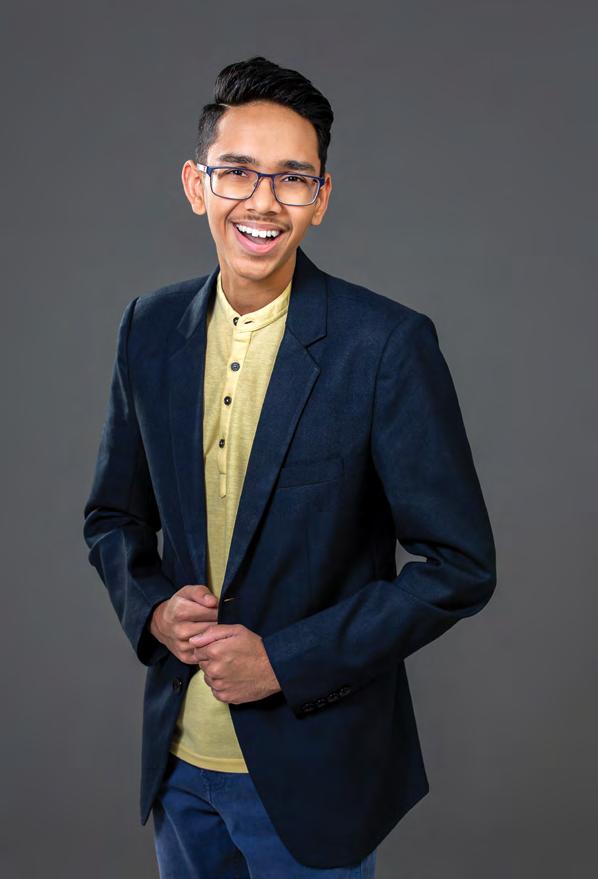
Eventually, however, Ravishankar’s interests forayed into software programming, which he first got acquainted with by enrolling for courses at Udemy, a US-based online learning and teaching marketplace. “Learning on my own through Udemy courses gave me the flexibility to learn what I wanted,” he says. “I participated in a couple of hackathons and won them, which boosted my confidence, and I felt encouraged to dive deeper and take on more complex challenges. I picked up programming languages such as Dart, Python, and Rust along the way, and started working on building software tools.” This path of self-study is also what led Ravishankar towards the software-led venture he built before he launched Dimension. “Like I mentioned earlier, I find the world of programming magical,” he says. “Code turns our imaginations into reality. Programming also gave me the opportunity to individually contribute to solving real world problems. When the Ukraine war started, I was disturbed by the number of people displaced. So, I built an app called Kyiv, with the intent to securely connect help seekers and providers.” As an app that was built in two weeks, during the onset of the Russia-Ukraine war in 2022, Kyiv offered users with a map to find the closest help locations, and also provided
updated listings on food, shelter, healthcare, transport. The lessons Ravishankar derived from creating Kyiv have certianly played a role in how he has gone about creating Dimension. And when it comes to the road ahead, Ravishankar displays the same laser-focused vision that has been evident throughout his entrepreneurial journey so far. But he’s also not getting too far ahead of himself, the teenager assures me. “Right now, we are focused on the minimum viable product and beta
testing, which should happen over the next two to three months,” Ravishankar says. “This is a crucial step that will help us in validating our product, and in receiving inputs for improvement. It is difficult to say where I see myself in, say, the next 5-10 years. However, the journey so far with Dimension has given me invaluable experience. I hope to continue learning in all aspects, and hope Dimension takes off and becomes the go to platform for all developers and engineering teams.”

The Group CEO of BEEAH has seen the enterprise grow by 10x in the last ten years. Now, he’s hoping to see it grow by another 10x in the next ten years.
by ABY SAM THOMAS | PHOTOGRAPHY ULYSSIS CASTILLOontinued growth” was the headline I gave the piece that I wrote after interviewing BEEAH Group CEO Khaled Al Huraimel in 2014, which was a nod to the underlying principle that I felt was driving his ambitions and aspirations for the UAE-born enterprise at that time. Nearly a decade later, as I chatted with Al Huraimel in March this year, I felt like not much had changed in terms of this Emirati executive’s psyche with respect to the business he leads- but I certainly cannot say the same about the company itself. Under Al Huraimel’s stewardship, BEEAH has undergone a massive transformation in the last couple of years- while it had come into being in 2007 in Sharjah as a public-private partnership company primarily focused on environmental and waste management, it is today a diversified investment holding group with operations in a variety of sectors, as well as a plethora of geographies. As such, its newly opened headquarters in Sharjah -a stunningly grandiose structure designed by the Pritzker Architecture Prize-winning Zaha Hadid- can therefore be easily seen as a symbol of the striking success that BEEAH has seen so far- but it can also be portrayed as a portent of its wins to come as well. “In the last 10 years, we grew by about 10x,” Al Huraimel says. “And now, we expect to grow by another 10x in the next 10 years.”
Now, as much as BEEAH has changed in the years since it was established, the company’s vision -much like Al Huraimel’s own mindset- hasn’t wavered- it continues to, as its website declares, envision a future built on sustainability, empowered by digitalization. “We’ve been focused on two pillars always- sustainability and digitalization,” Al Huraimel says. “When we started 15 years ago, our aim was to tackle environmental challenges this region is facing, and the first challenge we looked at was waste management. Our region, the GCC, had, at that time, the highest generation of waste per capita in the world- in the UAE, it was about 2.5kg per person, per day. So, we started our journey with the aim to tackle that problem.”

BEEAH was founded following a decree from H.H. Sheikh Dr Sultan bin Muhammad Al Qasimi, the Ruler of Sharjah, which was how it embarked on a mission to make the city the first in the Middle East to achieve zero waste to landfill, a target that the organization grows closer to every day. Driven by the vision of the Ruler of Sharjah and the UAE’s national sustainability agenda, BEEAH’s innovative waste management efforts already achieved the Middle East’s highest landfill waste diversion rate- over 76%.
Such an achievement has been made possible thanks to BEEAH putting together a state-of-the-art waste management center, which includes a material recovery facility (which processes over 600,000 tons of municipal solid waste annually), a construction and demolition waste recycling facility (which processes over 500,000 tons of this kind of waste annually), as well as a biomass facility (which processes 200 tons of waste daily to generate alternative fuel), among others. Last year, BEEAH inaugurated a commercial scale waste-to-energy plant in Sharjah that is set to divert 300,000 tons of waste from landfills yearly, while producing 30 megawatts of low-carbon electricity- it’s the first facility of its kind in the Middle East, and it is what is expected to push the Emirate to become the region’s first zero-waste city. After reaching this target, BEEAH is then going to repurpose Sharjah’s Al Saja’a landfill into becoming a solar energy farm- the first phase of the project will see it converted into 270,565 sq. m. of solar area with a projected output of 24 megawatts, and the second phase will convert an additional 200,099 sq. m. of solar area to produce 16 megawatts of solar power.
“We asked ourselves: how can BEEAH keep growing? We saw two ways in which we could do it: geographic expansion, or diversification. We did both.”
↓BEEAH GROUP’S APTITUDE FOR LEADING BY EXAMPLE is best showcased at the organization’s new headquarters- designed by the world-renowned Zaha Hadid Architects, the headquarters redefines the benchmark for green buildings.
BEEAH has thus been doing some pioneering work in Sharjah, and its achievements in the Emirate have certainly got it noticed, with the company becoming the recipient of several industry awards and international accolades over the years. At the same time, with growth always being a target for BEEAH, such accomplishments have also allowed it to make inroads into new markets as well. Al Huraimel points out here the company had realized quite early on in its journey that Sharjah alone is a comparatively small market for it to tackle, and so, it always had a plan in mind to make its presence felt in other locations as well. BEEAH thus started to secure deals and launch operations in the UAE’s other cities like Abu Dhabi, Dubai, Al Ain, and Ajman, and this has now made it one of the largest waste management companies in the country. “That being said, we saw this coming years ago,” Al Huraimel interjects. “So, we asked ourselves: how can BEEAH keep growing? We saw two ways in which we could do it: geographic expansion, or diversification. We did both.”
BEEAH started securing non-UAE contracts in 2020. The first of these was announced in January that year, with the company being appointed as the waste

management partner for Egypt’s New Administrative Capital (NAC), a new urban development that’s been aimed as an extension of its capital city of Cairo, which will be spread across 71,400 hectares and is expected to house a population of 6.5 million. At the time, the deal was billed as largest waste management contract in the MENA, and BEEAH decided to set the bar high for itself by aiming for an 80% waste diversion rate in the new city. In August that same year, BEEAH was awarded three contracts for waste management in Saudi Arabia’s holy city of Madinah, which covered its North, West, and East regions. BEEAH’s services are thus spread over 70% of the city today, with Al Huraimel noting that the company has currently got more than 3,000 of its staff there, all of whom serve a population of 1.2 million people. Last year, BEEAH went on to secure its second contract in Egypt, with it partnering with Green Planet -one of the country’s emerging environmental services company- to deliver waste management and city cleaning services for a period of 10 years in the city of Sharm el-Sheikh, the site for 2022’s Conference of the Parties of the United Nations Framework Convention on Climate Change, aka COP27.
According to Al Huraimel, BEEAH is
currently settling itself into the new markets it is operating in, but its growth ambitions aren’t done yet- East Africa is on the cards, he says, as are other promising locations around the world. At the same time, the company has also been pursuing an aggressive diversification strategy, with BEEAH setting up ventures in a number of sectors other than waste management. One of these is Evoteq, “a solutions provider that champions technological innovations and digital transformation,” which BEEAH launched in 2017. Having developed a platform called SmartTrack, a system that allows one to track and trace products from the point of production all the way to the consumer, Evoteq has since adapted its solution for the UAE Ministry of Health and Prevention to deploy as Tatmeen, the country’s first track and trace solution for pharmaceuticals. Another of BEEAH’s ventures is re.life, an enterprise that launched in 2021 and currently has two platforms under it: re.life collect, an on-demand solution that connects users to “a verified community of moving and transportation companies,” and re.life market, a virtual marketplace for the buying and selling of recyclables.
Of the two, it’s re.life market that I’d now like to draw your attention to- it was the winner of the B2B Platform of the Year award at Entrepreneur Middle East’s 2023 E-Business Awards, which was in recognition of the platform being able to record over AED100 million worth of trades of recyclable material in 2022. “This year, we expect over AED300 million worth of trade to happen on re.life market,” Al Huraimel says. “We’ve already opened an office in India, and the vision for re.life market is for it to be a global marketplace -the number one marketplace- for trading recyclable commodities, bringing buyers and sellers together, and eliminating the middlemen.” Much like Evoteq, re.life has been operating as a startup since it launched, which makes its achievements so far no small feat, and the fact that Al Huraimel is proud of both ventures is pretty apparent in the way he talks about them. Their successes also bode well for the prospects of BEEAH’s newest digital undertaking, which is a joint venture with Khazna Data Centers (one of the largest wholesale data center providers in the MENA) to develop and launch the first Tier 3 data center in Sharjah.
Its tech ventures notwithstanding, Al Huraimel adds here that BEEAH is also diversifying into new but more traditional sectors like real estate, energy, and healthcare. The first of these is tied to the work BEEAH did to develop its new headquarters in Sharjah- it is, after all, one of the most sustainable and most technologically advanced buildings in the region, and the experience and expertise the company gained while building it has led to the creation of its own real estate arm. Al Huraimel reveals that a real estate development is in the works in the same location as that of BEEAH’s headquarters, with the area set to become “a smart and sustainable district” in Sharjah. Meanwhile, in the energy sector, BEEAH has already shown what it’s capable of with the launch of its waste-to-energy plant last year; in the works is a waste-to-hydrogen plant, also the first of its kind in the region. While aligning with BEEAH’s zero-waste targets, the plant will also produce fuel cell grade hydrogen in support of zero-emissions mobility in the UAE. Al Huraimel also shares that BEEAH is looking into building a medical district in Sharjahthis will host what he calls “the hospital of the future,” which will be built in partnership with a consortium of Harvard Medical School-affiliated hospitals from the US.
All of what BEEAH is doing now is certainly a rapid evolution from its origins as a waste management company with about 40 people on its payroll- but it is also a testament to the dynamic and visionary outlook with which this business -now with over 13,000 employees- has been led since its start. “It is imperative that future cities and future economies are sustainable,” Al Huraimel says. “Achieving and maintaining sustainability is not possible without technology. I knew that we needed to keep
exploring what’s coming next in technology, because that’s going to help us be more sustainable. In our DNA as an organization, it was clear that both sustainability and technology needed to come together in all that we do.” Al Huraimel’s ethos can thus explain why his company has been ahead of the curve in terms of its interest in and adoption of cutting-edge tech- for instance, the rest of the world might only now be catching up with the potential presented by artificial intelligence (AI), but BEEAH has been working with it for the last few years now. For instance, the technology has, for one, been put to use in robots that segregate waste at its commercial and industrial waste recycling facility, and it’s also been deployed in its command center to track all of its vehicles and advise on the most efficient routes, depending on when bins tagged by radio frequency identification (RFID) indicate they are full and ready for pick up, as well as traffic conditions.

But if one needs a more visible example of AI at work at BEEAH, one needs to only take a look at its beautifully headquarters, operating at LEED Platinum standards. Johnson Controls, “the global leader for smart, healthy, and sustainable buildings,” powers the building with its OpenBlue digital technology, thereby making it the first fully AI-integrated building in the Middle East. As for what this actually translates into: well, for starters, think secure, friction-free access into the building, not just for regular occupants, but visitors as well. Meanwhile, predictive AI helps control light and temperature based on number of occupants, individual preferences, time of day and, of course, optimizing energy consumption for the highest levels of efficiency. Work is also underway on the OpenBlue companion app, which, when activated in the

headquarters, can act as a concierge helping building occupants with everything from locating meeting spaces, to ordering a beverage, or even as a personal assistant for employees to book appointments with their peers, or simply to access news and information. From an operational standpoint, Al Huraimel points out that AI-based tools like ChatGPT are already being made use of by BEEAH’s marketing and comms teams, and he also reveals that he hopes to see such technologies having a more active role in its finance department as well.
If it isn’t already clear by now, then let me state for the record that Al Huraimel is obviously the man at BEEAH spearheading its forward-thinking initiatives, and a lot of that has to do with his innate personality as well. “I think that when I see an opportunity, it just stays in my mind until I do it,” Al Huraimel says, in response to my question about his personal drivers for doing what he does on a day-to-day basis. Such a philosophy would also explain why Al Huraimel has quite a few business interests outside of BEEAH- you see, besides being a seasoned executive who has previously worked at companies like ENOC and Nakheel, he is also a serial entrepreneur with a number of ventures under his belt. One of them is Bait Al Kandora, which Al Huraimel launched in 2015 as the first Emirati designer menswear brand in the UAE, and then went on to become a market leader. There’s also Omada, which is today a full-fledged marketing technology group, as well as Dar Al Aqar Real Estate, which Al Huraimel describes as “a boutique premier real estate advisory and investment and brokerage.” More recently, Al Huraimel had an active role to play in the 2022 launch of Bedu, which today bills itself as “a Dubai-based
digital pioneer that operates at the outer reaches of the Web3 frontier, providing metaverse, blockchain, and non-fungible token (NFT) solutions.”
While Al Huraimel says he is typically quite hands-on when it comes to the early days of the enterprises he launches, he is happy to take on a back seat when they come into their own, and then let them have their own leaders, teams, etc. governing them. This is true of Al Huraimel’s current association with all of the aforementioned ventures, and that is also an indicator of his personal mentalities as a business leader. “I want to see others succeed,” Al Huraimel tells me. “For instance, with Bedu, I have a CEO, and I want him and his team to succeed, and I want to provide them with the and the foundation, then let them run with it. At BEEAH too, now, I want to build the next level of leadership to take charge of the enterprise. BEEAH has grown quite well in the last 10 years, and now for the next 10 years, we want to see much bigger

↑ FOUNDED IN 2007, BEEAH GROUP began its journey as a Sharjah-based publicprivate partnership company, primarily concerned with environmental and waste management. Recognizing sustainability and technology as the pillars for a modern economy, BEEAH Group invested in a comprehensive, full-circle strategy for the future, and expanded into the fields of renewable energy, green mobility, transport, education, and technology.
growth; that’s our plan. But this ‘bigger growth’ is not me- I need to develop the next generation of leaders to take BEEAH to the next level. So, if I want to grow by 10 times in the next 10 years, it needs a lot. And so, this year, we’re focusing on spending much more on preparing the next level of leaders to take on whatever challenges lies ahead.” Al Huraimel is thus clearly thinking about the long game at BEEAH. And if the successes he has engineered so far are any indication, then all signs point to a continued trajectory of growth for BEEAH in the foreseeable future- and thereafter as well.
“I NEED TO DEVELOP THE NEXT GENERATION OF LEADERS TO TAKE BEEAH TO THE NEXT LEVEL.”









YOU DECIDE WHEN THE PARTY STOPS WITH 24HR FOOD & DRINK. NOW OPEN AT DUBAI D IGI TAL P ARK.

Gadgets and doodads that you might’ve missed out on, sourced by a tech aficionado. by
TAMARA CLARKE
The Oppo Reno8 T 5G features a special micro curve at a precise 56-degree angle with an arc height of 1.9mm, giving it a striking, three-dimensional design. The larger 6.7-inch, punch-hole AMOLED screen also offers a more immersive, boundless viewing experience with a 93% screen-to-body ratio. Even with a nearly edge-to-edge screen and a larger battery for better performance, the device measures approximately just 7.7mm in thickness, and weighs only 171g. Its dual camera design includes two vertically aligned camera modules, bonded together by an aluminum alloy metal decorative base that encircles the camera modules at a height 0.2mm higher than the lenses, which will protect them from scratches when the phone is placed on a flat surface. The main 108MP portrait camera is
housed in the upper module, while the microlens camera, depth camera, and flash are found in the lower module. Thanks to the micro curves of the screen, Oppo Reno8 T 5G has a smooth, rounded appearance, and it feels good in the palm of your hand whether you’re watching videos, reading content, or gaming.
Powered by a next-generation Intel Core i3-N305 processor, the Acer TravelMate B5 14 comes with a 14-inch full HD (1920x1080) display, and gives you up to 7.5 hours of battery life on a single charge. For added convenience and functionality, the TravelMate B5 14 includes two USB 3.2 Gen 1 Type A ports, a USB 3.2 Gen 1 Type-C connector, Intel Wi-Fi 6E and 2x2 MU-MIMO for fast and uninterrupted network connectivity when online. It also includes Acer’s User Sensing Software, designed to help protect your privacy, and develop better habits when using your laptop.
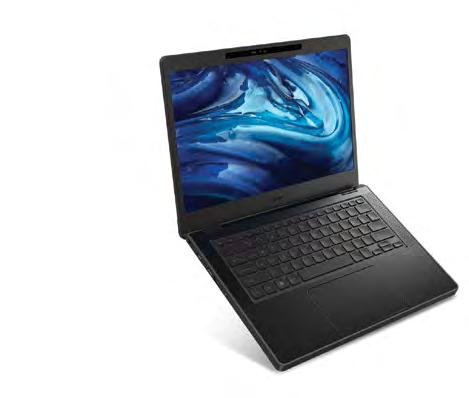



Apple Watch Series 8 features the beloved design of Apple Watch, including a large, always-on retina display made of strong crack-resistant front crystal. The large display accommodates all of your favorite applications, and makes tapping, typing, and swiping easy. Even better, the watch is dust- and water-resistant with an IP6X certification as well as a WR50 rating. With all-day 18-hour battery life and advanced health sensors, Apple Watch Series 8 provides insights to help you better understand your health with features such as the ECG app, fall detection, temperature-sensing capabilities, retrospective ovulation estimates, crash detection, and more. From tracking your sleep patterns to your heart rate, Apple Watch Series 8 can really help you get a handle on your health- and you can look good doing it. Apple Watch Series 8 is available in midnight, starlight, gold, silver, graphite, space black, and (PRODUCT) RED.
Completing its bundle of advanced protective software, the User Sensing AutoLock capabilities with optional built-in proximity sensors allow for accurate detection of your presence, and it triggers the screen to automatically lock when you’re away from your laptop. The device also has an additional HDR camera with webcam privacy shutter, as well as dual digital microphones with Acer’s PurifiedVoice to suppress background noise when on a call. All of these features combine to help you efficiently balance the daily demands of your work load.
TAMARA CLARKE, a former software development professional, is the tech and lifestyle enthusiast behind The Global Gazette, one of the most active blogs in the Middle East. The Global Gazette has been welcomed and lauded by some of the most influential tech brands in the region. Clarke’s goal is to inform about technology and how it supports our lifestyles.
Talk to her on Twitter @TAMARACLARKE theglobalgazette.com

From better goods to better wardrobe bests, every issue, we choose a few items that make the approved executive selection list. In this edition, our picks include Fendi, Perpétuel, Paco Rabanne, and more.
Los Angeles native Mike Amiri launched his namesake brand in 2014, and the Amiri label is today billed as one of the fastest growing businesses in the American luxury fashion market, celebrated for both its bold, artistic vision, as well as its refined, worldclass craftsmanship. For its Spring/ Summer 2023 line, Amiri has been

inspired by “Californian clear sky dreaming,” with the collection conjuring up a world of limitless possibility. Set inside Paris’ Jardin des Plantes, the season’s emblematic signatures are framed: relaxed, reconstructed tailoring, contemporary craft, and the house’s skate-inspired MA-1 sneaker silhouette. amiri.com



After Aletsch Blue, Bernina Grey, and Absolute Black, Swiss watchmaker Chopard has come out with a new color on the dial of its timepieces in the Alpine Eagle collection: Pine Green. And while this new shade is inspired by the natural colors shaping the beauty of the Alpine biotope, it is also indicative of this timepiece being the Middle East edition of the Chopard Alpine Eagle- the color green is, after all, particularly wellrepresented in Arab culture. Made from the brand’s exclusive and highly luminous Lucent Steel A223, this watch beats to the rhythm of the Chopard 01.01-C movement, and it has a textured dial that features Urdu numerals articulated around its center, as well as a radiating pattern that is reminiscent of

the eye of an eagle. For the collectors out there, do note that this series is a 100-piece limited edition of the sportychic timepiece- so, get it while you still can! chopard.com
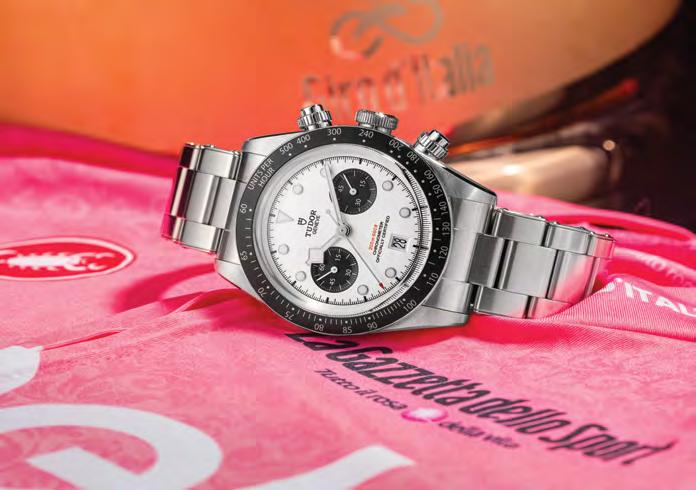
Swiss watchmaker Tudor has been announced as the official timekeeper for the Giro d’Italia, one of the most prestigious Grand Tours in the professional cycling circuit, with its coveted maglia rosa -i.e. the pink jersey that represents victory in this racehaving over a century of storied history behind it. For many cycling fans, the Giro d’Italia -which came into being in 1909- represents the most exciting race
event on the calendar, as the race is perceived as the most difficult, the most beautiful, and the most festive of the Grand Tour calendar. Tudor’s partnership with this historic event is thus representative of the brand’s daring spirit living in every cyclist who competes in the Giro d’Italia, while also cementing its presence in the professional cycling landscape. tudor.com
French haute couture house Maison Margiela has joined hands with global fashion eyewear brand Gentle Monster to bring out a genderless eyewear line (which includes sunglasses and spectacles) that encompasses 11 designs across numerous colorways. A collaboration centered on the brands’ shared belief in experimental craftsmanship, its designs have been structured in acetate, and they have been interpreted in glossy colors and effects spanning black, white, grey, cream, transparent, and tortoiseshell. maisonmargiela.com


In February this year, WatchBox, a global e-commerce platform for buying, selling, and trading pre-owned luxury watches, staged its traveling Retrospective Exhibition in Dubai to allow visitors to experience an unparalleled range of both vintage and current production timepieces from De Bethune, F.P. Journe, and other renowned watch brands. It was also an opportunity for WatchBox CEO Justin Reis to meet members of the watch collector community in the Middle East, and observe their strong appreciation for watch brands. “The market for pre-owned luxury watches in the UAE is quite strong, with a growing demand for ultra-rare and collectible timepieces by both established, traditional brands, as well as niche independent watchmakers,” Reis says. “Collectors have a consistent eye for quality and intriguing aesthetics, and they are seeking opportunities to engage and just play with watches.” And to give an example of how palpable the fervor for watches is across the GCC region, Reis mentions learning about some super niche behaviors in the UAE: “One particular collection included 37 baguette-set [Rolex] Daytonas,” he says.
Reis is particularly pleased to find such a vibrant community of watch lovers in the region, as they seem to be passionate enough to help him and WatchBox to drive change in the luxury e-commerce sector. That vision -to shape the future of tech-enabled luxury commerce through the strategic use of technology, innovation, and deployment of capital- is why he joined Liam Wee Tay and Danny Govberg to launch WatchBox in 2017. It is also with this premise that Reis devised the company’s global commercial strategy, which has led it through a number of milestones over the years, chief among them being a joint venture with Ahmed Seddiqi & Sons, one of the largest authorized dealers of luxury watches in the Middle East, in the UAE in 2019. “We recognize a growing appetite in the region for elite independent watchmaking, a category that is appreciated and shared by a robust community of collectors,” Reis notes. “There’s a special sentiment across the watch community built around knowledge exchange, making experiences like our Retrospective Exhibition particularly in tune with the region.”
While leading WatchBox to establish a footprint in the world’s major watch markets, Reis has gained interesting insights into the preferences of its clients globally- for instance, he describes the collector markets in Singapore and Hong Kong as being incredibly robust, and “with a proclivity for special, limited, rare, and exclusive watches by the most respected brands.” Reis adds, “We’ve had the opportunity to see the most unbelievable watches in our clients’ personal collections -pieces that we’ve only heard rumors of existing- drawing parallels to the realm of high-end art collecting. Mature collectors there have a knack for identifying horological trends before they travel westward, and we’re seeing this now with respect to conservative watch dimensions.” Meanwhile, clients in Europe prefer classic shapes, sizes, and complications, Reis notes. “European collectors are drawn towards time-honored, established brands celebrated for their rich heritage and exquisite craftsmanship, and there’s also great support for independent watchmakers.” As for the US, Reis says that the market there is characterized by a great diversity in collector interest. “The concept of a ‘collector’ there is more about mindset, and less about the specific watches in one’s personal collection,” he explains. “The American watch community is active and growing, with widespread interest in the major, established brands. The success of the independent category in recent years has given newer collectors the confidence to invest in high-end independent brands and watchmakers, stepping
WATCHBOX HAS A PRESENCE IN 12 LOCATIONS ACROSS SEVEN COUNTRIES TODAY, AND MAINTAINING A HIGH LEVEL OF ENERGY, QUALITY STANDARDS, AND EXCELLENCE ACROSS ALL TOUCH POINTS HAS BEEN A LEARNING EXPERIENCE.
beyond what was once their collecting comfort zone.”
} When asked how WatchBox differentiates itself from its competitors in all these markets, Reis points out that the company is structured in a way to be a lifelong partner to

its clients. “This is built upon a foundation of trust, education, and a shared passion for watches,” he says. “Our inventory is a perfect complement to this passion. WatchBox is home to the greatest collection of watches –from special pieces by
independent brands and watchmakers, to an extensive selection from the top brands– all of which is owned, and in peak condition. As an inventory-based operation, WatchBox authenticates and invests in every piece that we sell, and our global quality

standard ensures that each watch will be as close to ‘mint’ condition as possible, without compromising value at the time of sale.”

} With a wealth of experience in private equity investing, Reis’ expertise has been particularly valuable for WatchBox securing funds for its growth, including its recent raise of US$165 million. “It’s a milestone investment, because it supports our global expansion efforts, inventory growth, and initiatives to further develop the WatchBox community,” he says. “We entered new markets in 2022, including Zurich, Riyadh, and Shanghai.” At the same time, WatchBox also introduced its Collector’s Lounge concept [an immersive experience that combines a private showroom, a boardroom, a hands-on watch lab, and an event space] to key US markets, including New York, Los Angeles, Miami, and Boca Raton, Florida. “As of January 2023, we are officially open in each of these cities,” Reis adds. No growth comes without challenges, and Reis says here that the WatchBox team is trained to handle a whole range of potential obstacles, from practical logistics and keeping their focus on every discerning client, to keeping an eye on the
industry’s primary and secondary markets. “WatchBox has a presence in 12 locations across seven countries today, and maintaining a high level of energy, quality standards, and excellence across all touch points has been a learning experience,” he says. ”Personal relationships are at the core of everything we do, and while our business is growing at a remarkable rate, we cannot lose sight of each individual client need. This extends from a single
phone conversation between a client and client advisor, to creating meaningful, educational content for different markets, different languages, and different cultures, while also maintaining the sense of one global WatchBox community.”
} As a leader of a company that bills itself to be “home to the greatest collection of pre-owned luxury watches,” it is only natural that Reis is also strongly in favor of promoting the interdependence of the primary and secondary markets, which, he notes, is still challenging for most of the watch industry to accept. “We’ve seen a shift in the mindset and dialogue amongst collectors in the last several years, as they recognize the value and connectedness of both markets, and the industry needs to understand that the complete client experience lies in the merging of these markets,” Reis explains. “This challenge needs to be addressed at an accelerated pace to keep up with customer expectations.” One sign of this connectedness of the primary watch market and the secondary watch market, Reis explains, is in the easy flow of trends from one to another, with collectors seeking access, quality, and inherent value through trustworthy partners in both. However, there is one specific category that Reis would like us to keep an eye on, and that is the independent segmentwatch brands that are independent of any large groups.
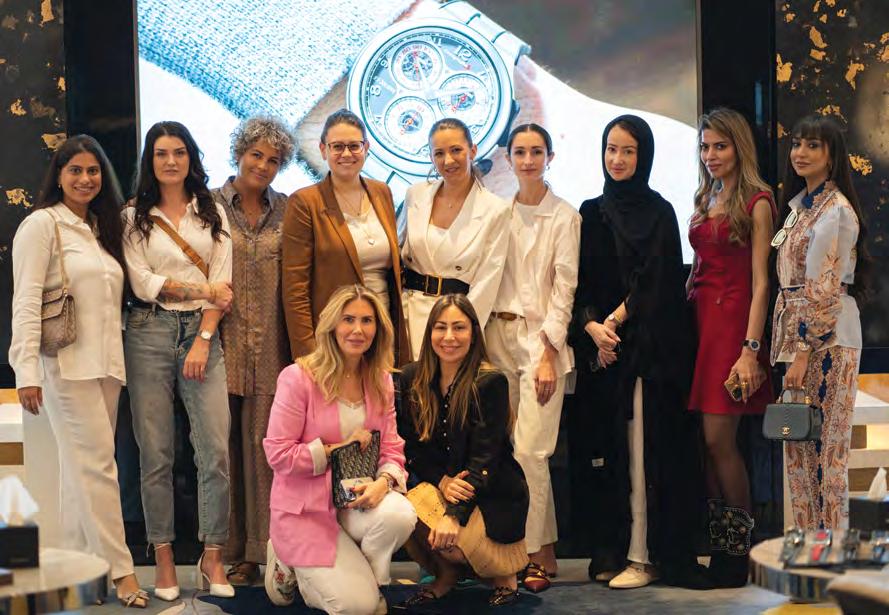
“Waiting lists at leading brands have been established to manage the overflow of orders in excess of available production capacity,” he says. “A strong secondary market for independent watch brands has since emerged, resulting in upward market adjustments of the most sought watches. Simultaneously, as consumers learn more about the category, the rare, early examples from leading independent watchmakers are increasingly recognized for their highly collectible status.” From Reis’ perspective, WatchBox is a strong supporter of pioneering independent brands, which include names like De Bethune, F.P. Journe, Greubel Forsey, Grönefeld, H. Moser & Cie., MB&F, and Voutilainen, exactly because they have institutionalized this type of manufacturer. “Volumes have increased as early-adopters no longer comprise the majority client in this segment,” Reis explains. “With a healthy secondary market, buying an independent brand watch no longer feels like the risk it represented when these brands and the independent genre were newly established.”

} Looking to the future, Reis says, his team will continue developing the WatchBox community “by bringing together collectors and the world’s most collectible watches, and sharing in experiences of discovery, education, and absolute enjoyment.” He adds, “Events such as our F.P. Journe and De Bethune retrospective exhibition, and informal gatherings across our global locations, will be a centerpiece to this year’s strategy.”
} DO YOUR RESEARCH, AND ENJOY THE PROCESS OF COLLECTING AND ADMIRING WATCHES. “From the accessibility of information and an educational standpoint, there has never been a better time to be a watch collector. The new entrant consumer has so much at their fingertips, from the history of brands, to models and collections, innovative technologies, materials, endless reference numbers, transparent data, and pricing information. WatchBox is all in on education, and through our in-house media division, we have produced over 7,000 individual hands-on watch reviews (in addition to other programming) to quite literally, bring a brand catalog to life, communicating functions, features, provenance, and context.”
} BUY WATCHES THAT YOU TRULY LIKE, AND TRADE PIECES THAT NO LONGER BRING YOU ENJOYMENT, OR THAT SERVE AS STEPPINGSTONES TO SOMETHING ELSE– THINK BEYOND RESALE VALUE. “While the WatchBox model positions pre-owned watches as a tradeable asset class with the benefits of real-time, market-driven pricing, we
do not look at timepieces as ‘financial investments’this is a hobby of passion. Whenever there is an imbalance or shift between supply and demand, the opportunities to buy great product at great value will rise. Yet, if the market shifts and financial conditions change, and you truly love the watches in your collection, you will be far less disappointed than if you only purchased watches based on hype and speculation.”
} DEVELOPING A TRUSTING RELATIONSHIP WITH THE SELLER OR DEALER IS AMONG THE MOST IMPORTANT FACTORS IN COLLECTING, WHETHER YOU ARE A NOVICE OR EXPERIENCED COLLECTOR. “This extends from a guarantee of authenticity to a watch being in the condition described when it arrives at your doorstep, a warranty to cover issues related to mechanical defects, transparency into market value, and a commitment to help you find the right watch for you. Trust is the foundation for so much enjoyment, for both the collector, and a company like WatchBox. Our team is truly obsessed with watches, and we really enjoy sharing in our clients’ collecting journeys.”


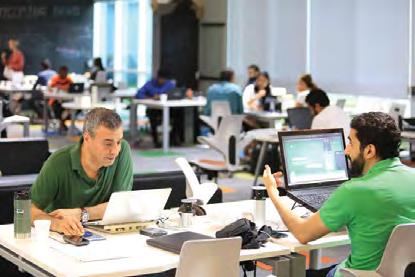

Lessons learnt through the course of a three-year-long entrepreneurial journey
by SAMER ASFOURJanuary 2023 marked the third anniversary of Nested VFX, the post-production and visual effects studio that I founded with my two partners, Deena Bibi-Lee and Anthony Geara in the UAE. What started as a dream in Lebanon in early 2018 (if we even allowed ourselves to consider it as such in those early days) has turned into a household name with offices in Dubai and Riyadh, as well as expansion plans across multiple cities around the globe. Now, if all you have is cash sitting on the side, and you’re eager to invest in a high-return startup or business, this article is not for you. I consider myself to be the least qualified to give investment and financial advice, and you’ll be way better off reading more authoritative voices in the field and following their advice. That said, there is one thing I pride myself on, and
that’s being passion-driven. Not to say that it always played to my benefit, but when I have my mind set on a goal, no matter how much the odds are against me, I always take a nosedive, and work tirelessly to change them.
Truth be told, it is very likely that your lifelong project is not one of these trendy ideas that will have investors pouring their money into it. If you are one of those only left with a great idea that only makes sense to them (and a minimal cash resource), what I share here can perhaps serve you as an inspiring guide on how to make it work. A warning before I start though- this is by no means the winning recipe, and, in most cases, the journey will leave you disappointed if not devastated. So, consider those points carefully before following in our footsteps!

At the start of our entrepreneurial journey, when we got tired of being let down by prospective investors, and then decided to finally take a leap and take matters in our own hands, the stars were not lined up for us, to say the least.

For starters, I had all my savings blocked overnight in Beirut, and I had to painfully watch their value spiral down when the economic crisis hit Lebanon in late 2019. However, my partner and I had already decided on a plan of action by then. We had set our sights on moving our base to Dubai, and we were determined not to let anything stand in our way. As such, we literally scraped whatever cash we could gather, and that’s how we ended up getting an office in the heart of Dubai Studio City.
Having next to no knowledge back then of the technicalities and legalities surrounding starting a new business, we were overwhelmed -but still not dismayed- by the amounts unaccounted for costs, as well as the mountains of paperwork needed. And that brings me to my first piece of advice for entrepreneurs: no matter how much you have researched, research more. Ask people that walked through this path before you about their experiences and hurdles. Invest in legal, insurance, and, most importantly, accounting advice, primarily when registering for taxes, and opening a bank accountwhich is the hardest of them all! Plus, always account for fitting, network cabling, electricity wiring, and the procedures for moving
TO BE SUCCESSFUL, YOU NEED ALWAYS TO PUT YOURSELF IN YOUR CLIENT’S SHOES, AND UNDERSTAND WHAT THEY WANTAND REMEMBER THAT WHAT THEY WANT MIGHT BE DIFFERENT FROM YOUR IDEAL SCENARIO FOR RUNNING YOUR BUSINESS.
furniture in, especially if you are opting for a shell and core office in a managed business community. Also, don’t overspend, but don’t also cheap out on your foundations, since any amount you save initially can come back to haunt you down the line. Our hurdles did not stop there, however. By then, we had reached the beginning of 2020, and little did we know that the world was on the verge of a life-altering pandemic. And, sure enough, a week after we were handed
the keys to our newly finished and fitted office, we were heading for a complete lockdown thanks to the advent of the COVID-19 crisis. Back then, giving up on our dreams was not only justifiable, but, by all accounts, perhaps the only sane thing to do. But thankfully, we didn’t.
I believe that Dubai (and the United Arab Emirates) was hands down the best place
across the globe to manage the coronavirus pandemic; if we were in any other city, I doubt I would be here telling this tale. Indeed, we were lucky to be back at the office in May 2020 with clients attending live editing sessions, while most of the world was still in lockdown. It is essential to know what any city you are opting to start in has to offer. Although the film and series industry is still modest across the region, Dubai is the hub for TV and online commercials, with
every worldwide advertising agency and brand having branches here. And, since the media and advertising industry was -and still is- our main target, starting in Dubai was the most reasonable course of action.

Those long hours you will put in before your business can stand on its own feet can seem very long and never-ending if you don’t have a partner along the ride. Looking back, I know I would not have been able to make it. Choose your partners wisely, though. Don’t go in with someone only suitable for the time being. I have seen far too many ventures fail, because the partners broke up early in the game. Instead, go with someone that you trust that they will stand by your side, not only now but for the years to come.
You will undoubtedly face difficulties, disagreements, and different management styles. You will fight, and even go to war against each other at times, but you should always have faith in one another, and know that no matter how significant the troubles and obstacles are, you will always have each other’s back.
Every industry has its own modus operandi, and knowing your industry’s one is a must. To be successful, you need always to put yourself in your client’s shoes, and understand what they want- and remember that what they want might be different from your ideal scenario for running your business. You need to be patient, and not force your way- at least not at first. You should not only know what your clients want, but also know what they want but don’t know that they want. Be one step ahead of them in your offerings, and, bit by bit, show them that the way you do business, although different, is more beneficial for them.
Also, remember that you’re a business owner now, ready to go full-length to win a contract. Still, the decision-maker in front of you is usually an employee by the end of the day, and the less headache and work you throw their way, the more they will appreciate working with you. Be respectful of everyone and of everyone’s time, no matter how low in the pay scale they are. In our fast-moving world, there is a big chance in six or seven years, that same intern sitting on the side taking notes will be a general manager or CEO with whom you’ll be eager to have a couple of minutes of their time to give them your elevator pitch- true story, by the way!
Most importantly, don’t shoot yourself in the foot. When you’re in an entangled industry like the one my company is in, never offer services that might portray you as a competitor to your clients. Even remotely taking one project that might have otherwise come their way is enough to get you blacklisted. Doing this will narrow down your pool of clients significantly. That said, make sure you also diversify your clients. Try not to have any client bring in more than 15% of your revenue. Otherwise, you will transform yourself and your business into a glorified employee.
If knowing your clients’
modus operandi is essential, knowing your competitors’ is paramount. Identify your competitors, and differentiate yourself. They might have a lead in the market over you, but you have your innovation, passion, and enthusiasm, and that’s the kind of magnet that is enough to shift market polarities.

If you’re an underdog, brace yourself as one, and be the disruption your industry so desperately needs. Don’t be afraid to think outside the box. And, whatever you do, do not compromise on the quality of your product and services. Always respect the deadlines you agreed on. Even if your client may not eventually honor them on their part, do your job, and deliver every milestone on time.
When you’re in the trenches fighting to win your first big contract, always be mindful of your team; without them, you cannot deliver. If you don’t take heed of them, you will find yourself quickly carried away, and committing to unrealistic deadlines and budgets that will leave your team tired, resentful, worn out, and looking elsewhere. Don’t drain your team, and don’t drain yourself as well. You need to stay sharp, focused, and with enough energy to win the next project, and the next one, and the next. Learn how to delegate, and trust who you hire. Put any ego aside (you’re the boss, you already won), and hire staff that can do things better and differently than you.
Also, do offer competitive prices, but don’t cheapen yourself. Once you are portrayed as the cheap solution in your clients’ eyes, they will be reluctant to pay you more down the line. Also, you will be automatically dismissed from the more prestigious projects. Remember, a street-made shawarma sandwich might be tastier than any grilled salmon for some, but you will only see salmon and caviar served in Michelin-star restaurants. Be that salmon and caviar.
After this three-year run with my business, sitting and resting to admire the achievements we’ve had so far is a well-earned blessing. However, my partners and I know too well that while we rest, others are still in the race. And so, we always stand up, and continue the runand so should you.
Keep the run going, and always surround yourself with new blood ready to push further with you. I have seen many companies with my own eyes that, after losing their stamina, quickly shrink and lose ground even after 20 years in the business.
In the end, always remember your initial goal, and never lose the spark that made you start in the first place.
Samer Asfour is the Founding Partner and CEO of Nested VFX. nestedvfx.com

DESIGNING DIGITAL EXPERIENCES [THE HOW-TO]
by PETER MACKINTOSH AND JACK KIDDIt’s easy to take good design for granted. Often, we don’t give it a second thought as we pick up our pre-ordered coffee, breeze through airport security in minutes, or buy a new pair of sneakers, but behind the scenes, everything has been methodically mapped out, tested, and tweaked to ensure the best possible customer experience at every touchpoint. Frictionless experiences are expected in today’s connected world, and for designers, the UAE is the best kind of playground to really push the boundaries of what’s possible. There is a willingness to try new things and keep evolving; the result being a thriving digital ecosystem that is disrupting the way we do things. It’s this growth that’s led to a massive demand in improving user experience (UX) across the board and more responsive web platforms/ apps being created as a result.
At Aspexx Digital, we often get asked about the “stages” for an interview, and how many we’d recommend. For most roles at the top level, it should be three to four rounds. The first stage should focus on the cultural fit, but it should be a two-way chat that allows the candidate to share their experience/motivations, while the interviewer should disclose more about the company vision/journey. It should be conversational and create a welcoming atmosphere.
The second stage should test the candidate’s ability with a task or presentation. We then usually push for an additional “round” where potential hires get a meet and greet with the team they will be working with. We have found this to be a particularly successful way of closing the deal, and minimizing back and forth. The final round is usually more of a formality to meet key stakeholders, and tick off any remaining queries from both parties.
NEW HIRES SHOULD MEET EVERYONE (FROM THE CEO DOWN) IN THE COMPANY STRUCTURE, EVEN IF THEY AREN’T GOING TO BE WORKING WITH THEM THAT CLOSELY.
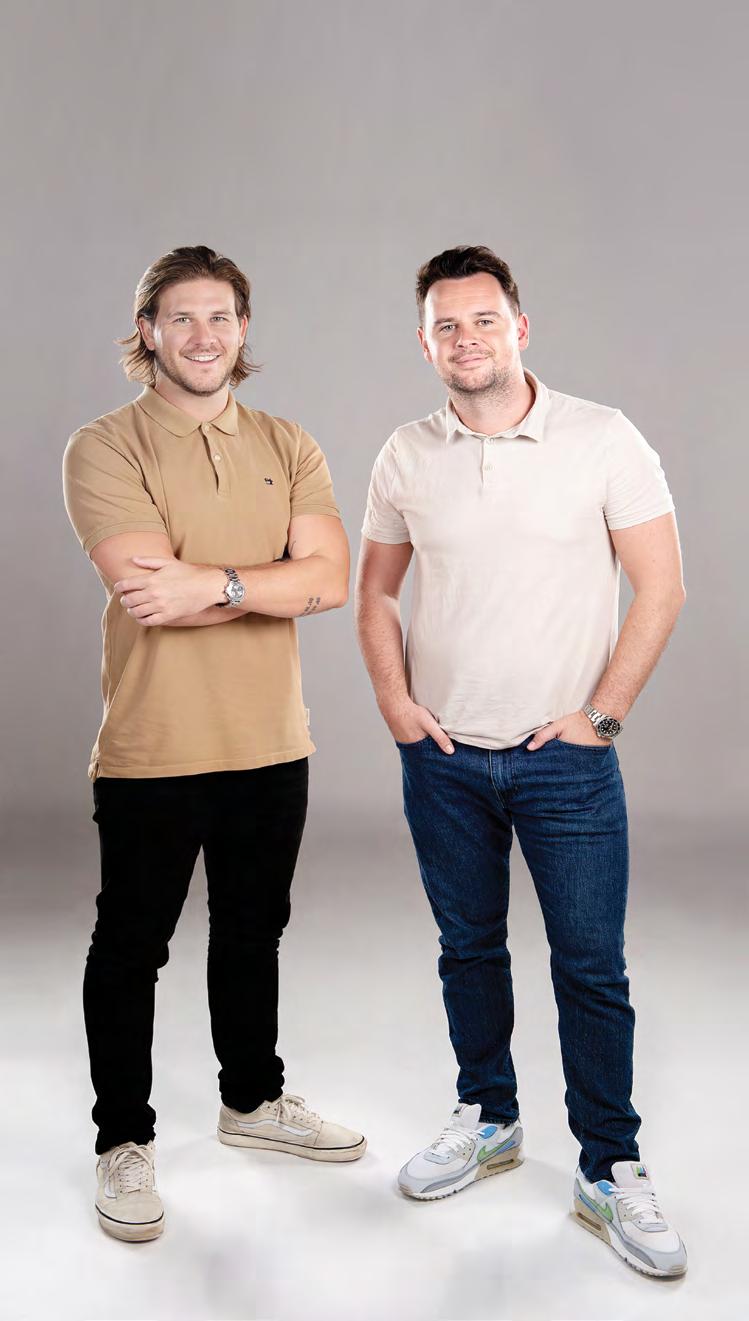
Say you have found your perfect hire, but you haven’t put much thought into the onboarding process. A major red flag for any new employee is when companies don’t get this right. In truth, onboarding should begin from the minute your offer was accepted. Not the day before starting, the morning of, or the end of the first week. You don’t need to overthink it, just get the basics right. For starters, set up the new hire’s workstation ahead of time. Allocate them a desk, upload all the software they will need, set up their email, and grant them access to the building. This ensures that they can hit the ground running from Day 1. Remember also that it can be daunting starting at a new company, so ease them into it, and ahead of their official start date, assign them a buddy who can show them the ropes, offer practical advice, and give them the office tour.
New hires should meet everyone (from the CEO down) in the company structure, even if they aren’t going to be working with them that closely. It helps them to understand who is responsible for what, easing their transition into the new work environment. These actions may seem small and trivial, but it sets the tone for how the working environment will be. If they feel welcomed and included, then, over time, they will become more confident and contribute more.
If you’ve nailed the first two pillars, then now is the time to think beyond immediate retention, and encourage long-term loyalty. Think of the digital and design industries as being constantly in motion. If you slow down, you’ll struggle to catch up. If you stop, you’ll fall off the radar altogether.

In our experience, the main way to boost creativity and innovation is to offer unrivaled opportunities for progression. Not what you were expecting? It may surprise you, but money isn’t everything, particularly in this vertical. Designers
THE SECOND STAGE SHOULD TEST THE CANDIDATE’S ABILITY WITH A TASK OR PRESENTATION. WE THEN USUALLY PUSH FOR AN ADDITIONAL “ROUND” WHERE POTENTIAL HIRES GET A MEET AND GREET WITH THE TEAM THEY WILL BE WORKING WITH.
like to build, be a part of the process, and influence real world practical application through thoughtful design.
In parallel to this, organizations no longer want to rely on agencies to help them achieve their design ambitions; they want to be in the driving seat. As key regional players pave the way for expansion, fleshing out their own teams to build and scale experience design, it opens a whole new realm of possibilities for current and future talent to thrive.
Ultimately, the UAE is always looking to evolve and mature; however, there is only so much that can be achieved with
ambition and investment alone. It takes the right people to make this vision a reality. If the two can align, then the potential for even greater service and experience-led design is limitless.
Peter Mackintosh and Jack Kidd are co-founders of Aspexx Digital, a talent solutions consultancy that supports companies in building and scaling experience design, innovation, product, digital, and technology teams across the UK, Mainland Europe, and the Middle East. aspexx.digital
It was 1984, and Lynda Weinman had just bought a Macintosh computer. Thanks to its user-friendly interface, Weinman, with the occasional help of Macintosh user group meetings, taught herself how to use it. “I was doggedly persistent and stubborn about wanting to learn it. You could just try everything
and you’re not going to break it,” she remembers. Before long, she was getting hired to do contract work for Hollywood animators, including working directly with film director William Shatner, where she worked on animations for the movie Star Trek V: The Last Frontier. What she didn’t yet know how to do, she figured out.
By the early 1990s, she found herself teaching graphic arts at the Art Center College of Design in Pasadena, California, where she was teaching students how to use tools like the then-new-fangled Photoshop, Illustrator, and other computer graphics software. She was looking for a web design book that she could assign to her students. Searching the bookstore, she grew more and more frustrated. She found only complicated technical guides that were impossible for the average person to understand. “I remember thinking, maybe this book doesn’t exist yet,” she says. “I went home from the bookstore, and wrote the book proposal.” Alas, the proposal was rejected.
Ever-persistent, as was her style, Weinman convinced a magazine publisher to let her publish her book chapters as a series of monthly columns. While researching one of the chapters, she came across a website called debbie.com, which was compiling all the “Debbies” on the internet, consisting of only about 20 Debbies at the time! “I wonder if lynda.com is available,” she asked herself. It was, and for US$35 she bought it, using it as her sandbox to teach herself web design, and as a place where she could gather and post resources to which she could refer her students.
Eventually, she found a publisher, a division of Macmillan, to publish her first book, Designing Web Graphics, in 1996. “It’s a book on web design, but no one has a website! They did not have a website!” she exclaimed. “Art Center doesn’t! But I do!” The book quickly became the top-selling web design book in the world. The Lynda.com website, mentioned therein, got
more and more popular, and before long it was ranked among the top 100 websites in the world. Weinman began getting teaching and speaking gigs about web design anywhere and everywhere.
With a highly successful first book, plus a second one with her husband Bruce Heavin also in print, the couple decided to quit their day jobs, and move to Ojai, an idyllic resort town not far north of Los Angeles. Heavin had an idea. “If they’ll pay for you to teach a workshop in Peoria, Illinois, why wouldn’t they pay for you to have a workshop in Ojai, California, and why don’t we produce our own workshops?” But there was nowhere they could find to teach. Another “No.” Fortuitously, they were able to convince a local school to let them use its computer lab during spring break. In 1996, they placed an ad on Lynda. com. The workshop sold out, with one of the attendees coming from as far away as Vienna, Austria.

In 1998, the couple opened a school, the Ojai Digital Arts Center, and started hiring other teachers that Weinman knew from the speaking circuit. “We had so many customers, we were turning them away,” she says. In the school’s first year in business, it did $1.7 million in revenue, with payment made weeks or months in advance. Even leading companies like Adobe and famous personalities like Martha Stewart were sending their employees.
Weinman was eager to publish more books on additional topics in her burgeoning field. But her publisher didn’t see eye to eye with her for some of them. She turned to video, using the main recording and playback medium of that time, video home system (VHS) tapes. Soon, checks were
(But it led to a US$1.5 billion story in the end!)
MULLINS[Editor’s note:This is an edited excerpt from John Mullins’ new book, Break The Rules! The 6 Counter–Conventional Mindsets Of Entrepreneurs That Can Help Anyone Change The World.]
arriving in their post office box, with the training tapes shipped out the same way. It was a simple mail order business. The business grew, and by 2001, annual revenue hit $3.7 million.

But the attacks on New York City’s Twin Towers on September 11, 2001, caused air travel to dry up overnight. “No one wanted to come to Ojai, California, for a training class,” Weinman recalls. At the same time, the dot-com boom of the late 1990s was turning to dust. “People who had been paying to come to our workshops had been doing it with funny money. We were very worried that we were going to go out of business.” Staff was cut from 35 to 9 to keep the business afloat. Then Heavin came up with another idea. “There’s only
so much you can do with a couple of kids in a shipping room.” He wanted to start selling their videos online.
They started with 24 courses in 2002, the same things they’d been teaching and writing about. “We were way too early,” recalls Weinman. The internet was dial-up in those days, and bandwidth was limited. By the end of the first year, they had only 1,000 customers paying $25 per month for a subscription that provided access to all their titles. Worse, subscriptions were cannibalizing the sale of the stand-alone videos, which were being sold at $150 each. Nonetheless, sales grew and within less than five years, the company was back to its pre-2001 revenue level.
They stopped in-person classes. Stopped writing books. No more DVDs. They went all-in on the online idea. As it turned out, people everywhere who taught Photoshop and web design were using Weinman’s courses, and bringing them into their schools and into their companies. Says Heavin, “We’d be installed in all of Apple, all of Adobe, all of Microsoft, all of Google. And the employees were starting to demand that companies bring it in. It was just a word-of-mouth thing.”
In 2007, having passed the 100,000-subscriber milestone, they brought in an outside CEO, Eric Robison. “We were fumbling with success,” says Heavin. “Here I am an art student, and
Lynda is a teacher. We had no business background.” Revenue had hit $10 million, and California’s venture capital community had noticed. The phone was ringing off the hook. As the new team took shape, they stepped on the gas. Sales reached $100 million in 2012. In 2013, somewhat reluctantly, the couple finally took outside investment.
The business grew even faster, and in 2015, LinkedIn made an unsolicited offer to buy the business. LinkedIn wanted to broaden its business from helping its users with “how to get a job,” and add “how to get trained.” LinkedIn paid $1.5 billion for the business, which they subsequently rebranded as LinkedIn Learning. The business that Weinman and Heavin had lovingly nurtured for nearly 20 years had made its mark!
Arguably, Weinman changed the world for many of the more than four million students who took one or more of Lynda. com’s online courses. New skills. New passions. New jobs. New careers. Lynda Weinman is the poster child, the exemplar entrepreneur, perhaps, whose journey foretells the lessons I impart in my book. In my view, it was Weinman’s innate entrepreneurial mindset, as much as her superb pedagogy, that made her journey so successful. Fortunately for you, you don’t have to have been born with these six break-the-rules elements of an entrepreneurial mindset. You can learn them, and apply them. After all, entrepreneurs are made, not born- at least most of the time!

John Mullins is an internationally recognized thought leader on entrepreneurship, professor of management practice at London Business School, and a best-selling author whose newest book is ‘Break The Rules! The 6 Counter–Conventional Mindsets Of Entrepreneurs That Can Help Anyone Change The World’. johnwmullins.com

I REMEMBER THINKING, MAYBE THIS BOOK DOESN’T EXIST YET. I WENT HOME FROM THE BOOKSTORE, AND WROTE THE BOOK PROPOSAL.↑ JOHN MULLINS ↑ LYNDA WEINMAN
The popularity of cryptocurrencies has skyrocketed in recent years as a result of enhanced accessibility and news of record-breaking price surges. This inexorable rise has made millionaires of some, but its notorious volatility has also left many investors nursing substantial losses. These extreme fluctuations in value, as well as the lack of scalability, has ultimately impeded the widespread adoption of cryptocurrency as a payment method. Its shortcomings have, however, given rise to new types of digital currencies, attempting to succeed where their predecessors fell short.
Over the past two years, the number of stablecoins in circulation has increased exponentially, currently valued at more than US$100 billion. This upwards trajectory stems from the defining characteristic of stablecoins; they are backed by a reserve asset in a 1:1 ratio, most commonly American dollars or precious metals. As a result, its inherent value should not be affected by external movements, as is the case with conventional cryptocurrencies.
In fact, stablecoins are quickly becoming the primary competitor to fiat currencies by offering the speed and cost benefits of
cryptocurrencies such as Bitcoin- but without the price volatility.
Like cryptocurrencies, stablecoins are exchanged via distributed ledgers known as blockchains. These blockchains use computer algorithms to verify exchanges, eliminating the traditional role of banks or credit card companies. In doing so, they also eliminate the fees associated with intermediaries, lowering overall transaction costs. Stablecoin blockchains are also typically faster than their crypto cousins. In fact, Diem, Meta’s stablecoin, is expected to process at least 1000 payment transactions per second. If successful, Diem will process transactions 2.5 times faster than SWIFT, the world’s largest facilitator of international payments.
} But what does this mean for the general public? Well, for one, the speed and low cost of stablecoin transactions will significantly improve cross-border payments, and ultimately enhance financial inclusion on a worldwide level.

Digital currencies may well be the way forward- but not all of them are going to make it by GHADY RAYESS
Global stablecoins can make international transactions more accessible by allowing consumers to send money directly through any mobile device or digital wallet, without needing a deposit account. This can greatly benefit people in countries with underdeveloped financial infrastructure, who may not have access to efficient or affordable payment options. Stablecoins also eliminate foreign exchange fees to make cross-border payments more affordable- a particular advantage, for instance, to the blue-collar workers in the Middle East that regularly send money back home to their families. The principal goal of stablecoins is to offer an alternative to cash by streamlining payments among consumers on a day-to-day basis. But they also hold promising potential for investors. By merging the favorable qualities of both digital and fiat money, stablecoins act as an effective on-and-off ramp between the two worlds. They can be easily converted into national currencies at a fixed exchange rate, so that users can effortlessly move funds from their bank accounts to stablecoin wallets, and vice versa. This provides financial institutions and investors with greater confidence to enter the cryptocurrency trading arena, as they can easily convert their holdings back into their national currency if needed.
} Despite their potential to bring about many benefits, stablecoins can present some risks if not regulated. Their increasing popularity and adoption in the mainstream financial landscape has raised concerns among regulators. The rise of stablecoins resembles the “Free Banking Era” of the 19th century, when private American banks were able to issue their own currencies. When consumers lost confidence in a particular bank, they would attempt to withdraw their funds all at once. This often triggered a “bank run,” where many customers rushed to withdraw their money at the same time, causing the bank to run out of cash, and ultimately leading to its failure. The same concern exists with stablecoins. While some issuers transparently disclose the assets they hold to back their coins, they are not subject to the same stringent reserve requirements as traditional financial institutions,
particularly if the issuer is a private organization. This therefore leads to skepticism about whether stablecoin issuers have enough reserves to maintain the fiat ratio of 1:1 during times of crisis.
} The Tether scandal intensified these apprehensions, as the market-leading stablecoin issuer faced multiple allegations of not being transparent about the extent of its reserves. In 2021, Tether settled with the New York Attorney General’s office over charges that it falsely claimed that its stablecoin was backed 1:1 by US dollars at all times. The settlement required Tether to pay $18.5 million in penalties, provide regular reports on its reserves, and cease trading with New York residents. Despite the settlement, the concerns surrounding the lack of oversight and transparency in stablecoin issuance and backing continue to persist.
However, when issued by reliable organizations, private or government regulated, stablecoins can be advantageous. For instance, in the case of initial coin offerings (ICO) or stable token offerings (STO), investors can be paid out in stablecoins. This means investors’ funds will be subject to less volatility, and more suitable as stored value than less stable cryptocurrencies. The question therefore is: how can we enjoy the potential benefits of stablecoins while maximizing trust in the issuers behind them?
This is where central bank digital currencies (CBDCs) come in. These fully digital currencies are similar to stablecoins in that they offer all the same benefits, namely, greater convenience and accessibility. Like stablecoins, CBDCs can be transferred quickly and efficiently, enabling faster and cheaper transactions than the fiat alternative. Moreover, CBDCs are just as borderless as their privatized counterparts, using blockchain technology to eliminate the need for intermediaries such as banks or foreign exchange services.
} Stablecoins and CBDCs can coexist, and both can be regulated by financial institutions. However, there are some key differences between the two. Rather than being pegged to an underlying asset, CBDCs are designed to function as a digital version of a country’s fiat currency, directly issued by governing authorities. Stablecoins do not have exchange value with another currency, not even with the fiat currency by which it is backed. Backed by a central bank, CBDCs can be converted to fiat currency, providing a more standardized and regulated framework to ensure safety and stability, as well as greater trust and confidence in its use.
} CBDCs are also designed to offer even greater interoperability with other digital currencies and payment systems, due to their centralized and standardized nature. Stablecoins, on the other hand, can be fragmented across multiple platforms, and they may face challenges in achieving the same level of interoperability. Undoubtedly, both stablecoins and CBDCs have the potential to play an important role in the future of finance. But while stablecoins unlock exciting possibilities as an investment currency and store of value, their role in the future of finance is likely to end there. CBDCs, on the other hand, are primed to take over as the backbone of everyday payments and financial services due to the increased security, trust, and agility they offer through a regulated compliance framework.
Ghady Rayess is the co-founder and Managing Director of FOO, an award-winning B2B fintech company focused on empowering businesses with in-house built innovative products. foo.mobi
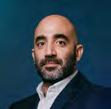
I REMEMBER THINKING, MAYBE THIS BOOK DOESN’T EXIST YET. I WENT HOME FROM THE BOOKSTORE, AND WROTE THE BOOK PROPOSAL.
Behind every success story lies years of commitment, diligence, and the maturity to embrace both failure and triumph alike
by RUWAIDA ABELA NORTHENWe live in an era where reality television stars become presidents, and the words “influencer” and “entrepreneur” are often interchangeable- it’s perhaps no surprise then that today’s newbie employees seem to have an insatiable appetite for instant wins. They want to ride the express elevator all the way to the top, skipping the years of sweat and tears it takes to truly comprehend the intricacies of their chosen profession.
They want to be “the big boss” before they’ve even learned to answer the phone. I can’t help but wonder if we can really blame them, given that they’ve been fed a steady diet of TikTok-ers who turned into entrepreneurs and tech prodigies, and became billionaires before they hit 30. This has led many to believe that a lustrous career should come with no effort. The truth, however, is far less glamorous.
In their feverish quest for quick wins and instant stardom, are they missing out on the real meaning of success?
} Let’s talk about salaries, for starters. With their rose-colored glasses firmly in place, many young workers have developed an over-inflated sense of worth, demanding high-paying positions as soon as they get out of school. There’s a certain naiveté to this mindset that’s almost endearing, but as they trek into the job market with their heads held high (and their expectations even higher), their fantasies are quickly shattered by the harsh reality of entry-level salaries, and the fact that they actually need to put in the work.
}Now, don’t get me wrong. I’m all for seizing opportunities and pursuing dreams. Still, there’s something to be said for the wisdom that comes from experience gained at work, and this generation’s adamant refusal to respect -and learn from- those who have blazed the trails before them is both disheartening and selfsabotaging.
I suspect they genuinely believe that idea of “paying your dues” is antiquated, as archaic as the rotary phone, or dial-up internet. They laugh at the thought of working their way up from the bottom, convinced they’re destined for greatness from day one. But what they fail to realize is that the road to success is paved with failures,
and that sometimes, the most valuable lessons are learned from the mistakes we make along the way.
I strongly suspect that this delusional mindset results from the “participation trophy” culture, where everyone is a winner, and no one has to work hard to achieve greatness.
The reality television-fueled myth of instant success has been immersed into their psyche, creating a generation with a distorted sense of entitlement.
It’s as if they expect their lives to be an Instagram Reel of glitzy parties, red carpets, and truffle burrata, with little regard for the blood, sweat, and tears that must go into crafting those seemingly effortless moments.
We must remember that behind every success story lies years of commitment, diligence, and the maturity to embrace both failure and triumph alike.
Starting at the beginning doesn’t mean settling for less. It means you’re laying the groundwork for a flourishing future. We must remember every accomplished person started somewhere.
Oprah Winfrey was a local news anchor before she became the queen of talk shows. J.K. Rowling was a struggling single mother before she wrote the Harry Potter books. And Steve Jobs started Apple in his parent’s garage.
}The corporate world is not a unicorn field of dreams, and the sooner young professionals accept this reality, the better equipped they will be to thrive in a cutthroat environment. No one starts at the top; we have had to learn, adapt, and grow through trial and error, facing challenges and setbacks along the way. It is in overcoming these obstacles that we gain the experience, skills, and resilience needed to ascend the corporate ladder. While it is crucial to have big dreams and even bigger ambitions, it is equally important to set realistic expectations while working hard and persevering against the odds. It is very much like trying to hail a taxi in the Dubai World Trade Centre neighborhood when GITEX is being staged at that locationone must remain committed to the task at hand, and not give up on reaching their final destination.
Let us also talk about the elephant in
the room: salaries. While it’s endearing to believe that one can just walk straight into a cushy job with fabulous perks, the reality is that our young protagonists might be biting off more avocado toast than they can chew.
But it’s not just about the money. It seems that these aspiring trailblazers have also adopted a rather cavalier attitude towards experience, brushing off the wisdom of their seasoned colleagues like fluff on a Chanel jacket. It’s as if the very idea of “paying your dues” has become an antiquated punchline in the sitcom of their professional lives.
It’s as if these young workers believe that they already know everything there is to know. and that the wisdom of those who have walked the path before them is irrelevant.
Alas, they must come off their grass-fed horses, and embrace the trials and tribulations of the journey. It’s time to learn from those who have come before, to respect their experience, and to understand that true success is earned, not handed to us on a silver platter.
They should think of their careers like a perfect hand-stitched Birkin– it takes time, attention to detail, and a lot of hard work to create a masterpiece.
Real success begins with the eagerness to learn, hustle, and grow- with a side of organic avocado toast, of course.
With over two decades of experience tucked under her designer belt, Ruwaida Abela Northen has become a veritable virtuoso in the realms of consumer marketing, corporate communications, and high-impact campaigns, not to mention her finesse in public and media relations.
Ruwaida’s odyssey began with the Corinthia Group in Libya, then she hopped over to Malta with Starwood, and further jetted to Bahrain with the Ritz-Carlton. From there, it was off to Qatar, where she worked her magic with Shangri-La Group.
Climbing the corporate ladder with agility and determination, Ruwaida ultimately ascended to the role of Vice President for PR and Corporate Communications, shattering glass ceilings as the first Arab woman to hold such a position in the company’s history.
In 2021, Ruwaida decided to chart her own course, establishing JRN Consultancy, a boutique agency specializing in luxury lifestyle, travel, and hospitality. With its headquarters nestled in the glitzy skyline of Dubai and representation in Qatar and Saudi Arabia, JRN embodies the spirit of a “journey.” A fierce advocate for female empowerment, Ruwaida has built an all-women team, who, under her guidance, are conquering the world one luxury experience at a time. jrnconsultancy.com

WHILE IT IS CRUCIAL TO HAVE BIG DREAMS AND EVEN BIGGER AMBITIONS, IT IS EQUALLY IMPORTANT TO SET REALISTIC EXPECTATIONS WHILE WORKING HARD AND PERSEVERING AGAINST THE ODDS.→ Ruwaida Abela Northen




→ THE KEY TO AL DABBAGH’S endeavors in making Maeya accessible to the masses has been to make sure it is inclusive of every woman’s unique body shape.
Former Saudi Arabian bodybuilder Somaiah Al Dabbagh wants women to feel comfortable in their skin through her size-inclusive luxury activewear brand by AALIA MEHREEN AHMED

inance. Bodybuilding. Fashion. Ordinarily, each of these would appear to be completely unrelated fields. But in the entrepreneurial journey of Saudi Arabian national Somaiah Al Dabbagh, you will find that all three had a collective role to play when she founded her UAE-based online luxury women’s activewear brand Maeya.

You see, Al Dabbagh’s career graph first started out as a finance professional- a job she held onto until 2014. But that was just before she became the first Saudi woman to have competed in a bodybuilding and fitness contest staged by World Beauty Fitness and Fashion (WBFF), a US-based international fitness pageant organizer. Indeed, in 2015, Al Dabbagh kickstarted her bodybuilding career by taking part in the WBFF Worlds Las Vegas. She then went on to partake in multiple WBFF female fitness competitions such as the WBFF Pro World Champion in 2017 and the European ProAm London in 2018. This was a career shift that resulted in Al Dabbagh even being awarded a WBFF Pro Card, a title that recognizes an individual as a certified fitness and bodybuilding professional. “I had a career in finance; it was a challenging and rewarding job that taught me a lot about strategy, planning, and attention to detail,” Al Dabbagh recalls. “However, after some time, I realized that I wanted to pursue a career that aligned more closely with my personal interests and passions. That’s when I discovered bodybuilding and fitness. It started as a personal interest, but it quickly became a lifestyle and a passion. I was fascinated by the science behind fitness and nutrition, and I loved the feeling of pushing my body to new limits.”
Al Dabbagh’s experience as a bodybuilder, however, opened her eyes to an issue that she herself needed a solution for. It was an observation that eventually led to the creation of her brand, Maeya, whose name is phonetically derived from the second half of her own first name. “As a bodybuilder, I struggled to find activewear that met my needs- clothing that was both stylish and functional,” she says. “That’s when I realized that there was a gap in the market that I could fill. I had the business acumen from my finance background, and the personal passion and understanding of the needs of fitness enthusiasts from my bodybuilding experience. It was the perfect combination to create Maeya. So, the journey from bodybuilder to entrepreneur was a natural progression for me.” Launched in 2020, Maeya’s clothing line-up includes leggings, sport tanks, fitness shorts, t-shirts and loungewear designed for women, irrespective of their age or size.
} The brand’s underlying ethos, therefore, is to marry fashion with functionality. And Al Dabbagh says she spent plenty of time doing the groundwork to bring this vision to fruition. “I founded a brand aimed at providing stylish and highquality wardrobe options for women from all walks of life,” Al Dabbagh explains. “After two years of research and brand development, my goal was to empower women and enhance their confidence by offering versatile and fashionable activewear for daily use. As a fitness enthusiast, I identified a market gap for activewear that combined fashion and functionality. And so, with Maeya, my goal is to make a positive impact on the world by promoting physical and mental well-being through a healthy and active lifestyle.” With a direct-to-consumer (D2C) and businessto-consumer (B2C) multichannel retail model, Maeya sells its products through its online store as well as via select retail partners. “This strategy increases customer loyalty and lifetime value, as customers can purchase Maeya through multiple touchpoints and the revenue model is based on the sales of our products through these channels,” Al Dabbagh adds.
But the key to Al Dabbagh’s endeavors in making Maeya accessible to the masses has been to make sure it is inclusive of every woman’s unique body shape. Through this, the founder hopes more women will feel comfortable and confident enough to foray into their own individual journeys towards healthy lifestyles. “At Maeya, we strive to create activewear that not only performs well, but also makes women feel empowered,” Al Dabbagh says. “When a woman wears Maeya’s clothing, we want her to feel comfortable, stylish, and supported in whatever activity she’s engaged in. Our clothing is designed to move with the wearer, providing a perfect fit and offering the support and coverage needed for any activity. Our commitment to quality, style, and innovation is at the core of everything we do, and we believe that this is reflected in the experience our customers have when wearing Maeya.”
But part of feeling your best is to also look your best. And Al Dabbagh says her startup has left no stone unturned in ensuring it offers a collection that is fashion-forward and chic. “At Maeya, we believe that fitness and fashion are not mutually exclusive, but rather an essential amalgamation,” she says. “We therefore place a strong emphasis on
style and design, taking inspiration from the latest fashion trends, to create unique and distinctive pieces that our customers will love. While my own preferences have certainly influenced Maeya’s offerings, we strive to offer something for everyone. Our activewear collection is designed to be inclusive, and to cater to a wide range of personal styles and preferences. We also place a strong emphasis on customer feedback, constantly seeking input to improve our offerings, and ensure that we’re meeting the needs and desires of our customers.”
} With great fashion, however, come great sustainability responsibilities. After all, the global fashion industry is currently in the midst of advocating for products and operations that don’t harm the environment. From circular fashion models that reuse and recycle fabrics, to the use of plastic-free resources, fashion sustainability is a global movement that began after the revelation of some distressing studies. As an entity that views itself as a part of the fashion ecosystem, sustainability became a serious point of consideration for Maeya as well. “We take great care in selecting materials that are not only comfortable and durable, but also safe for our customers and the environment,” Al Dabbagh says. “We strongly believe that using non-toxic fabrics is the right thing to do, as it aligns with our values of promoting wellness and sustainability. Many conventional fabrics and synthetic materials used in fashion today can have harmful effects on the wearer’s health and the environment, so we prioritize selecting non-toxic materials. It is our responsibility as a brand to make a conscious effort to minimize our carbon footprint, and leave a positive impact on the world, and using non-toxic fabrics is just one way we are working towards achieving that goal.”

AS A FITNESS ENTHUSIAST, I IDENTIFIED A MARKET GAP FOR ACTIVEWEAR THAT COMBINED FASHION AND FUNCTIONALITY. AND SO, WITH MAEYA, MY GOAL IS TO MAKE A POSITIVE IMPACT ON THE WORLD BY PROMOTING PHYSICAL AND MENTAL WELL-BEING THROUGH A HEALTHY AND ACTIVE LIFESTYLE.
Indeed, in a bid to stay true to their sustainable fashion goals, Al Dabbagh and her team have also come up with a “mix and match” option for their clothes. “Our decision to offer mix and match options for our activewear collection was rooted in our commitment to sustainability and promoting a circular economy,” Al Dabbagh explains. “We wanted to offer our customers the ability to extend the life of their activewear wardrobe by allowing them to combine various pieces to create new looks and styles. This not only enables customers to get more wear out of their existing Maeya pieces, but it also helps to reduce waste and promote an eco-friendlier approach to fashion. Additionally, our mix and match options offer versatility and allow customers to customize their active wardrobe to fit their individual style and preferences.”
Of course, creating a startup that so seamlessly ties together fashion, fitness, and sustainability is no mean feat for a new entrepreneuer. When asked how she managed to bring such a concept to life, Al Dabbagh credits Maeya’s success to her days as a professional athlete. “As a bodybuilding and fitness athlete, I had to put in a lot of effort and dedication to achieve success, and the same principles apply to entrepreneurship,” she says. “I learned that there is no substitute for hard work, and that every challenge can be overcome with determination and resilience. Overall, my experience as an athlete has been invaluable in shaping my mindset, and preparing me for the challenges of entrepreneurship.”
} That would perhaps explain why -in a true show of how no job is too menial or insignificant for an entrepreneur- Al Dabbagh took it upon herself to juggle many responsibilities at the same time.. “I have taken on multiple roles, including photography, social media management, marketing, and customer service, allowing us to prioritize finances towards the product and maintain financial stability,” Al Dabbagh reveals. “Until January 2023, we operated with only a few freelancers as needed, and I personally handled tasks that I was capable of executing effectively, which not
only saved costs, but also allowed me to build my skillset. The quality of our activewear has generated sales and sustained steady growth without external investment, and my ability to effectively manage the business with limited resources speaks to my entrepreneurial spirit and efficiency.”

Throughout Al Dabbagh’s journey, there is an easily observable level of self assuredness that many entrepreneurs would aspire towards. So when asked what her advice would be to those who are still grappling with fear or doubts, Al Dabbagh shares an important reminder. “Recognize that fear is a natural emotion, and that it can often be a positive indicator that you are stepping outside your comfort zone, and onto the path of growth and achievement,” she says. “It is important to acknowledge your fears, but it is equally important to challenge and overcome them. Another key piece of advice is to focus on the positive outcomes of taking the leap of faith, such as personal and professional growth, financial stability, and the ability to make a positive impact in the world. These positive outcomes can serve as a source of motivation, and give you the courage to move forward despite your fears.”
} As for Maeya, the next step forward for the brand lies in expanding its online presence, whilst simultaneously opening physical stores,
starting with one in Dubai. “Our objective is to collaborate with additional online retailers in the UAE and globally, and potentially broaden our range by offering athletic wear for men and children,” Al Dabbagh reveals. “While customers in KSA and the USA can presently purchase items directly from our website, we have plans to partner with Ounass and Namshi in the future. Furthermore, we are seeking an online retail partner in the UAE, and we hope to work with Bloomingdales in due course. Going forward, our focus is on expanding into new markets in the GCC and USA, while continuing to offer innovative design, meticulous attention to detail, and exceptional quality products to our customers.”
I LEARNED THAT THERE IS NO SUBSTITUTE FOR HARD WORK, AND THAT EVERY CHALLENGE CAN BE OVERCOME WITH DETERMINATION AND RESILIENCE.








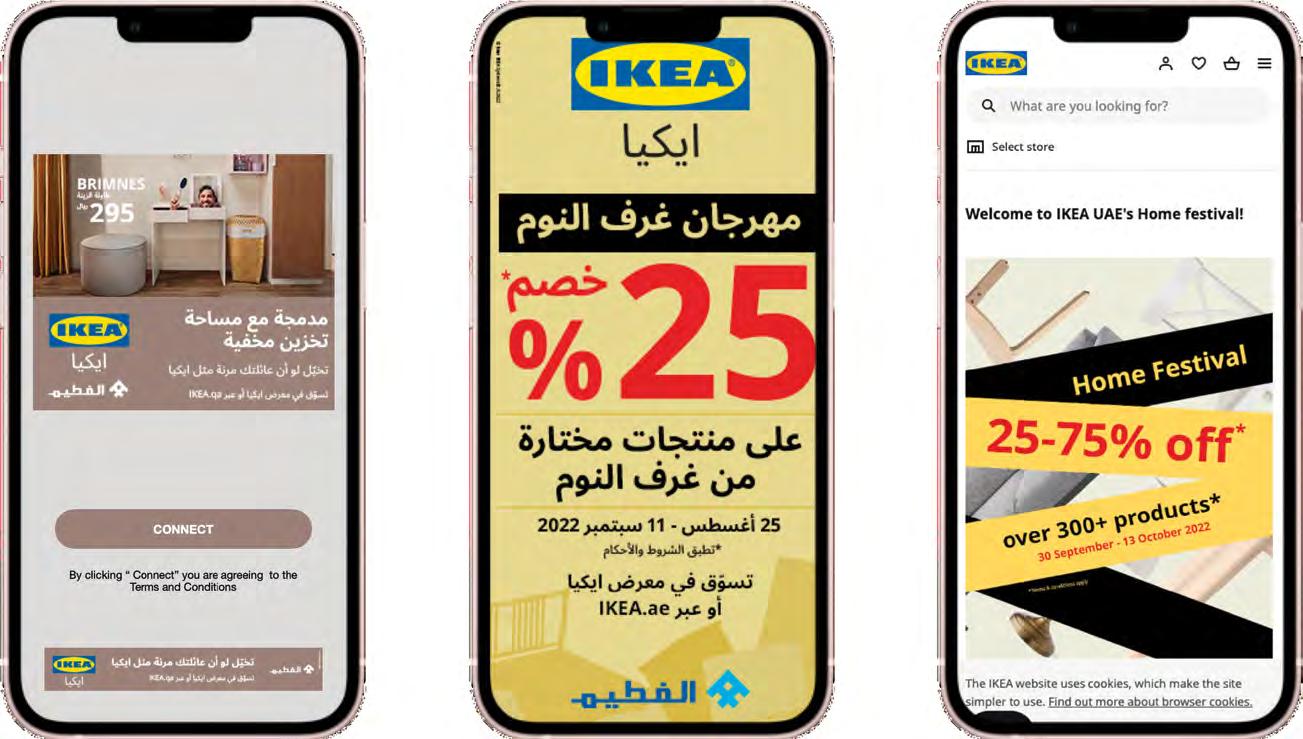






COFE, A UAE-headquartered online platform for coffee brands, has raised US$15 million in a Series B funding round led by Wa’ed Ventures, a venture capital firm owned by Saudi Aramco.

The round also saw the participation of eWTP Arabia Capital (eWTPA), the investment arm of China-based venture capital (VC) firm eWTP Capital, which is backed by Saudi Arabia’s sovereign wealth fund Public Investment Fund (PIF) and China-based e-commerce platform Alibaba Group. Three other Kuwaitbased investment companies also took part in the round, including Al Imtiaz Investment Group, a Shari’ah compliant investment group, KISP Ventures (KFH Capital), an early-stage Shari’ah compliant tech VC firm, and Rasameel Investment Company, a wealth management fund.
Launched in 2018 by Ali Al Ebrahim, COFE is an online marketplace for global and regional coffee companies. Having recognized a supply chain gap between local farmers, roasters, and coffee shops, Al Ebrahim built the COFE platform using a farm-to-cup approach, i.e. working directly with local/regional coffee bean farmers. Once downloaded, the COFE app offers its users access to a wide range of international franchises as well artisanal coffee brands through multiple premium services. And by catering to customers in Kuwait, UAE, Saudi Arabia,
AND THEN PROBABLY EXPAND TO THE UK AND EUROPE.
and Egypt, COFE has already made an indelible mark in the MEA coffee industry, a $44 billion market, as per a Mordor Intelligence report.
But now, with new capital at its disposal, Al Ebrahim believes his startup can address issues that stall chances of further growth for the regional coffee market. “The funding we’ve received helps us not only strengthen our current tech, but also develop features that we
know will tackle existing challenges that both our users and vendors may be facing,” Al Ebrahim said in an interview with Entrepreneur Middle East. “We want to build our platform to be a complete solution where vendors can find everything from having a customizable online store front, to rewards programs, marketing tools, and even facility management. We want to help them tackle everything, so they can focus on
what they do best- make that perfect cuppa.”
Al Ebrahim adds that a portion of the funds will be especially allocated towards tailored customer experiences. “In the case of users, there is a rising preference for home brewing and specialty coffee, both things that are not always available on one-size-fits-all platforms,” he adds. “COFE is quickly becoming a platform where all the different coffee lovers can find whatever it is that they are looking for. Lastly, with this funding round, we plan to expand and offer our services. Our aim is to strengthen our position in the MENA market, and then probably expand to the UK and Europe.”
} Of course, COFE’s inclination towards further innovation isn’t a consequence of just this particular funding round. Over the years, the platform has added other services such as coffee beans, machines, and other home brewing accessories to its list of offerings. “COFE’s very inception is based out of innovation- when trends started to shift where you could see people
wanting to pick up their coffee on their way to work and other commitments, just as much as they liked to sit in coffee houses, we came up with COFE which was focused on pick-up,” said Al Ebrahim. “But just as we were beginning to settle in, the COVID-19 crisis happened- coffee shops and other establishments were forced to shut down, and in many places, our vendors were left with zero revenue streams. This is when we started on the idea of building up on our home brewing segment. This worked both for the supplier and the consumer. So much so that we have now launched COFE Market, where we have already onboarded 107 roastaries (35 in Kuwait, 41 in KSA, and 31 in UAE). Moreover, over 110,000 product stock keeping units have also been acquired and featured on the application since 2022.”
Consistent with its ability to stay atop the latest trends, COFE has also capitalized on the worldwide growth of subscriptionbased services with the launch of a 30-day COFE Subscription. “As consumption habits change, COFE is always developing technology and product-based solutions,”
Al Ebrahim said. “The worldwide subscription industry has shown tremendous growth within a year, and it has increased from $119.4 billion in 2022 to $196.35 billion in 2023, with a compounded annual growth rate of 64.4%. The 30-day COFE Subscription feature allows our users to pre-pay for their daily caffeine for 30 days, saving them time taken to order the same thing everyday, and also adding more value to their money through deals, bundles, and discounts. COFE is the first marketplace in the region that allows customers to subscribe to a service of this kind.”
} Indeed, this innovation-driven approach has ensured consistent growth for the startup in Saudi Arabia in particular. Soon after its move into the Saudi market in 2020, the COFE app was listed as one of the Top 10 Most Downloaded Food Delivery and Restaurant Apps (2021) in the Kingdom in a survey conducted by the Communication and Information Technology Commission. COFE was also chosen as the official partner of Riyadh

Season 2022, an annual pop culture festival held in the capital city. COFE has also engineered a partnership with the PIF-backed Saudi Coffee Company, which resulted in a $319 million investment that will be used to develop the national coffee sector over the next decade.
Commenting on his enterprise’s investment in COFE, Fahad Alidi, Managing Director at Wa’ed Ventures, said, “Our mission is to advance sustainable innovation within emerging tech segments in the Kingdom. The founding team at COFE, supported by its cutting-edge platform, will disrupt a multi-billion-dollar market fueled by a nation-wide initiative supporting its growth for years to come. We look forward to backing COFE’s growth, as it continues to lead the digitalization of farm-to-cup consumerism across the region.”
} Veteran Chinese entrepreneur and eWTPA founder Jerry Li shared similar sentiments when commenting on why his enterprise was keen on partaking in COFE’s Series B funding round. “We partner with like-minded entrepreneurs, and support the growth of promising businesses in the GCC region,” Li said. “We believe our investment, combined with strategic assistance, will provide COFE with resources to scale and grow. Our investment is a testament to our commitment to promote innovation in the region.”
Al Ebrahim, on his part, remains committed to his mission to keep introducing innovative solutions into the regional coffee market. “From marketing tools that enable its vendors to streamline their ad budgets, to providing maintenance solutions, and eventually the ability for retail chains to buy beans directly from the local farmer, COFE is on its way to become the complete farm-to-cup solution,” he reveals. “With regards to the farm-to-cup approach, we, at COFE, are aspiring to be more than just a logistics brand. We connect all kinds of COFE producers to COFE consumers, whether it is through international franchise brands, local coffee roasters, or the farmers.”
NUQTAH, SAUDI ARABIA’S FIRST non-fungible token (NFT) marketplace platform, has raised a seed round of funding led by Hong Kong-based venture capital firm Animoca Brands with participation from blockchain platform Polygon and a few regional investors. The new investment will be used to scale up Nuqtah’s business over the next 12 months in the areas of product development, marketing, talent acquisition, and other operations.
Nuqtah was founded in 2021 by Salwa Radwi, a photographer, artist, and Web3 and blockchain advocate, and one of the first female founders and CEOs in Saudi Arabia’s NFT scape, and co-founders who boast industry experience by working for the likes of Careem and Oracle.
With a license from the Ministry of Communications and Information Technology and Ministry of Investment in Saudi Arabia, Nuqtah quickly gained traction in the Kingdom given that it allowed users to easily build, deploy, and monetize NFT collections without having to navigate complicated blockchain infrastructure.
“Nuqtah’s traction has actually hit a groundbreaking 10,000 users this month, after our last investment announcement,” Radwi adds. “We have a few thousand NFTs listed as well, and our B2B arm has been able to enable an even large audience via some of the largest art and media enterprises in the region, meaning that galleries and institutions can enable their own artists with their own NFTs, on their own websites, through Nuqtah’s platform. That’s the impact we believe in.”
However, it has not always been an easy ride for Radwi and her team of 15 to develop Nuqtah. “Saudi Arabia ranks as one of the most tech-driven
economies in the world with more than 68% of population being less than 30 years old, which really makes the entire Kingdom hungry for new innovative ideas and tools; however, despite this hunger and inquisitive mindset, I believe the full reigns of Web3 are yet to hit the region, making it our job to carry the torch of this extremely powerful industry for the region,” she explains. But the potential of Nuqtah to empower local artists and technical talent to develop the Web3 industry in Saudi Arabia and the broader region is what has allowed it to secure the backing of Animoca Brands. “Our investment into Nuqtah is another meaningful step in our commitment to build up the Web3 industry in the MENA region, as well as to develop our own capabilities in the region,” says Animoca Brands co-founder and executive chairman Yat Siu. “Nuqtah is an important pioneer, and we anticipate that it will greatly help to boost Web3 and NFT adoption in the Middle East. We will continue to expand our operational presence, and collaborate with local strategic partners looking to adopt Web3.”
When asked about her experience of pitching to Web3 investors, Radwi replies that she sees them as “true visionaries for trusting founders, and their instinct in this new and exciting industry.” She adds, “Investors investing today are truly winners of the long haul, as they see the inevitability of this technology, and they can see and predict patterns of past success stories in different industries.” That said, pitching in the Web3 sector requires a lot of grit, says Radwi. “Be ready not only to introduce the problem and solution, as most founders usually do, but also the technology itself, and how it has already began changing the world across borders,” she explains. “Accept that you as a founder are here to innovate, adapt, and do whatever it takes to reap the impact of this new technology. Therefore, be open to
testing, learning, and listening to your users. Most importantly, stick by your promise. Show these investors that you will not stop until this works, and that you will not rest until you are a major part of the history in the making of not only the world of blockchain technology, but also the region as whole.”
} With a number of reports indicating that the NFT market is getting back on track from the multiple crypto crashes in 2022, Radwi considers that the difficult period did some good by revealing true enablers and true passion projects in the sector. “The major trend and most exciting part of this current time is seeing NFTs and blockchain being used for real life solutions,” she says. “Really cranking how this technology is already enabling gamers for new lines of financial stream, empowering creators to create and own with ease, allowing media production houses not to lease, license, and IP their assets but to own and sell them for means. These are but few examples of real life needs that are being solved thanks to the NFT scene.”
And speaking of her expectations of the NFT space particularly in Saudi Arabia for 2023, Radwi draws her enthusiasm for the sector from some interesting statistics, starting with a 2022 report by Boston Consulting Group that showed that there are 23.5 million gamers in the MENA region. “That’s almost 70% of the entire population, and so you can realize that these are generations already familiar with online purchases, assets, and interactions, and these are the interactions that the NFT market will use to grow in the region. As a result of that, we can see a 195% year-onyear growth in crypto transactions. That’s insane. Plus, the government continues to promise billions of dollars towards new and innovative tech models, and so put all of the above in the equation, and my prediction would be that the growth of the NFT space in the region is inevitable!”
Nuqtah co-founder Salwa Radwi advises NFT creators

} Don’t stay in a boring 9-5 job “If you long to be a creative, the creator economy exists for you, and you should be an essential part of it.”
} Do a lot of research “This space can be intimidating, but you won’t know unless you try, so getting in at the right time can compensate time and growth for years of a mundane posting.”
} Adapting for the region is key “Learning from the international market is great; however, what makes arts powerful is culture. Embrace our rich history, and flaunt it, because that in itself is a power that can never be overused.”
When it comes to innovation within the UAE’s healthcare sector, home-based healthcare is an area that continues to seek improved services. And tending to this need in the industry is UAE-based startup DarDoc. Launched in July 2021 by Samer Masri and Keswin Suresh, DarDoc is a healthcare app that enables patients to receive a variety of services from the comfort of their homes. “What sets DarDoc apart from other players in the home healthcare market is our comprehensive approach to healthcare services,” Suresh says. “While other players may offer a simple booking page on their app or website, we go beyond that by offering real-time reporting and monitoring, providing patients with a truly immersive healthcare experience. Additionally, our cloudbased suite of tools for healthcare providers allows for seamless coordination and real-time analysis of patient data. DarDoc’s unique combination of mobile application and cloudbased operation suites therefore not only offers a convenient and accessible solution for patients, but also empowers healthcare providers with the tools they need to provide high-quality care.”
} Now, as is the case for many startup ideas, DarDoc was born out of a situation where one of the co-founders had to face the brunt of solvable inefficiencies. “I used to suffer from an auto-immune disorder, which required a nurse to administer me with injections at home,” Suresh recalls. “Upon noticing severe irregularities in accessing home healthcare within the UAE, particularly with the reliance on a lot of manpower and traditional pen-and-paper methods of tracking patient information, I decided to join hands with Masri to address these challenges. We then developed a cloud operation suite that digitizes home healthcare services, reducing the cost of operations for providers, and increasing the quality of care for patients. DarDoc streamlines the entire home healthcare process, from scheduling appointments to tracking patient data. Our mission is to make home healthcare services more accessible and affordable for everyone in the UAE, and thereby create a more equitable healthcare system.”

} With a team of eight full-time dedicated healthcare professionals, DarDoc has already served over 4,000 patients across the UAE, and recorded over 50,000 nursing hours on its home healthcare platform. Among the many services DarDoc offers its users include special care for newborn babies by certified caregivers (who can be booked for as little as four hours, to as long as a month), 24x7 home nursing for the elderly, as well as physiotherapy services at home. The platform also offers flu vaccines and dialysis at home, as well as vitamin intravenous therapy drops and vitamin tests. Patients can also take thyroid tests and food intolerance tests at home using DarDoc. “Our team is composed of talented professionals from various backgrounds, all dedicated to leveraging technology to improve healthcare outcomes and patient experiences,” Suresh adds. “We operate on a self-pay model, where patients pay for each home visit. Our fees are competitive with traditional healthcare providers, making it affordable for patients to access quality healthcare services from the comfort of their homes. Our revenue model is thus centered around providing affordable home healthcare services in the UAE through our self-pay model, while also working with insurance providers to offer insurance powered medical care soon.”

As a solution that operates at the intersection of medical technology and patient care, Suresh is aware that maintaining a human touch will offer his startup a formidable edge in the long run. “We recognize that technology is only one part of the equation,” he says. “At DarDoc, we understand that healthcare is a deeply personal and emotional experience, and we strive to provide compassionate care to every patient we serve. To ensure that we maintain a strong human connection with our customers, we have established a toll-free customer support system. This allows us to hear and attend to patient feedback and concerns promptly, ensuring that every patient feels heard and cared for.”
} In the nearly two years since its launch, DarDoc has thus ensured that thousands of patients across the UAE have benefited from its solution. But it wasn’t always smooth sailing in reaching out to the patients, Suresh reveals. “One of the biggest challenges we faced was the need to build awareness about our services, and educate customers about the benefits of home healthcare,” he says. “However, with the support of the Dubai community and our dedicated team, we have been able to overcome these challenges, and build a successful business. Particularly in the case of the MBRIF program, we were drawn to its focus on promoting innovation and entrepreneurship in the UAE, which we believe is essential for the continued growth and development of the region.”
But reaching a wider audience wasn’t all that the MBRIF accelerator program had to offer to DarDoc. “In addition to the program’s overall mission, we were also impressed by the range of support services that it offers, including access to funding, mentorship, and training,” Suresh says. “These resources have been invaluable for our startup, as we navigate the early stages of growth and development. Another unique aspect of the MBRIF program that stood out to us was the emphasis on sustainability and social impact. As a healthcare startup, we are committed to making a positive difference in the lives of our patients, and we were pleased to see that the program shares this commitment to creating a better future for all.”
Having already raised a pre-seed funding round of US$600,000, Suresh believes his startup is well positioned to continue its journey in making home healthcare services accessible to more patients across the UAE. “We are currently in the process of raising a seed round and will be making an announcement soon,” Suresh says. “Looking towards the future, DarDoc has the potential to significantly transform the healthcare landscape in the UAE by providing affordable and accessible healthcare services to patients in the comfort of their homes. We believe that our innovative platform and focus on digitizing home healthcare operations will enable us to scale the business, and achieve long-term success.”
WE UNDERSTAND THAT HEALTHCARE IS A DEEPLY PERSONAL AND EMOTIONAL EXPERIENCE, AND WE STRIVE TO PROVIDE COMPASSIONATE CARE TO EVERY PATIENT WE SERVE.→ AMONG ITS MANY SERVICES, DARDOC offers special care for newborn babies by certified caregivers
BBD Education is a management and consulting business that was set up in 2012 by Professor Ralph Tabberer to pioneer professional educational services for the emerging schools’ markets in the GCC. It has won licenses for -and established- more international schools in the GCC region than any of its competitors. Expert staff cover all features of school operations: academics, financials, facilities management, school design, procurement, human resources and recruitment, admissions and student services. It’s incredibly niche, and it can be quite turbulent as the organization services the sensitive space between investors and educators.
}When I joined BBD as its CEO back in November 2016, I did so with the single intention of growing and scaling the business, raising capital, and/or selling it. It was ambitious, but I’d already worked in the sector for eight years, and I’d seen the potential from my previous roles, and I thought that the time was right to give it a go. After all, it’s no secret that the MENA private education sector is the largest in the world, and it is often referred to as the crucible for private education.

Both Ralph and I had previously worked for large organizations before, so the challenge of growing a small business into something bigger was attractive in a variety of ways. Ralph was previously Director-General of Schools for the UK government, and, between 2009 and 2012, he was COO and CEO at the UAE-based GEMS Education. As for me, I had previously worked for educational consultancy company SSAT Middle East, and between 2008-2014, we operated 47 public schools in Abu Dhabi, and also various private schools in the region.
In a small business, the buck stops with you; you are required to manage the entire admin aspect of the business, whilst doing business development, whilst being part of operations. And when the buck stops with you, it’s very easy to get up in the morning, and it’s very easy to work 24 hours a day, seven days a week. I don’t care how many TED Talks there are, how many internet memes there are about wellbeing and all that- you simply cannot substitute the level of personal accountability that comes with being the CEO of a small business.
In a large corporate organization, you have a legal department to throw stuff at, you have a finance department to rely on, and you often have a marketing department who will write content and drive sales. Within a small business, resources are limited; so, it means that you have to get involved with everything and learn everything. This small business mentality is the edge that has set us apart in building BBD, and the culture our team inhibits.
}When we wrote our original business plan in 2016, we defined our business objectives into three simple categories so that we could easily assign time and allocate resources, and also develop a language to discuss our business objectives. This, we believed, would be our pathway to our bigger goal. As such, between 2016-2020, we mainly operated in Dubai and Abu Dhabi, but we also delivered services in Egypt, Bahrain, Qatar, Jordan, Saudi Arabia, and Singapore.
Right before the COVID-19 crisis struck in 2020, we had physical projects in the UAE and KSA, and we were just starting a project in Ahmedabad, India as well as in Jakarta, Indonesia. But everything switched to Zoom almost immediately, and the schools we were planning to open ground to halt.
Like everyone else, the uncertainty that resulted from the coronavirus pandemic caused us to rethink and reevaluate every aspect of our business. Education, it seemed, was in the global spotlight, and despite the pandemic’s negative impact, our services seemed to be more in-demand, because investors and schools were forced to rethink their strategies and operating models.
Whilst the majority of companies around the world made cuts to salaries and shed some of their workforce, we took a different approach. We told our team that they would not be getting a salary cut, but we expected them to work six days a week, with weekend schedules, to accommodate our clients in different time zones and countries. We needed to sharpen our tools, sharpen our delivery, and simply over-deliver in order to sustain ourselves during the pandemic.
Ultimately, this has paid off in dividends for our culture, because everyone took the lead, and everyone stepped up, and this upskilled several staff members in different areas of the business. And once business resumed to relative normality, the demand for our services returned to the levels we had seen prior to the COVID-19 pandemic here in the UAE and KSA.
One of the projects that really caught our attention then was a future
education-focused project. Since 2021, we have been heavily invested in research on innovative schools around the world, future trends in the workplace, and what this means for education. It’s clear that since the pandemic, governments are rethinking education in more radical ways, and we’re proudly at the forefront of this.
The Middle East region has been quick to recover from the pandemic, with schools recognizing the need for added capabilities in digital learning due to the crisis. The region remains the fastest moving in the world in terms of the growth of international schools. Expansion is already back underway, because of the welcoming and mature regulatory environment that has been built, first in Abu Dhabi, then Dubai and Doha, and now, in Riyadh and other leading cities in Saudi Arabia. This momentum led to us being acquired in May 2022 by Pansophic Learning, the large international education operator, as part of its strategy for expanding in the region, through its new entity, Global Schools Management (GSM) Middle East. The Group educates over 35,000 students across its schools and nurseries in the US, the UK, Switzerland, and Uganda. The founder of Pansophic Learning, Ron Packard, is a visionary, global educator, and entrepreneur who was previously the founder and long-time CEO of K12 Inc. (He oversaw the growth of K12 from just an idea to almost one billion dollars in revenue, making it one of the largest education companies in the world.)
With the acquisition of BBD, GSM Middle East launched its operating entity. Then, in October last year, Safanad, a global principal-led investment house and GSM announced an initial planned investment of $200 million in the MENA region’s education sector during the sixth edition of the
Future Investment Initiative (FII). As part of this announcement, the two entities have made a commitment to invest significantly beyond this to acquire, manage, and develop multiple charter, online, early learning, and K-12 private schools independently, and in partnership with regional governments. So, what could other startups learn from our story so far? Well, for starters, avoid following cliches about startups, and whatever trends may be doing the rounds today. The truth remains that fostering a good small business culture, having a strong entrepreneurial spirit, and developing a set of industry tools and habits are things that can actually pay off in the long run.
Nothing substitutes personal accountability, managed risk-taking, and being able to sell your services and products to people that might need them.
Shaun Robison is an entrepreneurial chief executive who has delivered exceptional results across the MENA education sector. Shaun has worked with investors, operating companies, consultants, teachers, and government regulators to plan, license, deliver and scale projects.
Shaun has published education research in a range of academic journals, covering the Middle East education sector, whilst also advising some of the region’s largest groups, such as the Adani Group in Ahmedabad, LIPPO Capital in Jakarta, The City Schools Group, and The Sobha Group in Dubai. Shaun has also been an Advisor to the Executive Council of Dubai and the Ministry of Finance, Oman.
Shaun holds a PhD in education, and he is a Governor for the IDEA Early Learning Center. He is also a regular contributor to The Business Breakfast show, which occupies the prime-time slot in the mornings on the Dubai Eye 103.8 radio channel. gsm.education
EDUCATION, IT SEEMED, WAS IN THE GLOBAL SPOTLIGHT, AND DESPITE THE PANDEMIC’S NEGATIVE IMPACT, OUR SERVICES SEEMED TO BE MORE IN-DEMAND, BECAUSE INVESTORS AND SCHOOLS WERE FORCED TO RETHINK THEIR STRATEGIES AND OPERATING MODELS.
Hope Ventures General Manager Fajer Saleh Al Pachachi explains the motivations underlining her enterprise’s production of the entrepreneurship-themed reality television show, Beban
Beban, the entrepreneurship-themed reality television show produced by Bahrain-based Hope Ventures, the investment arm of Hope Fund, brings an element of entertainment to traditional equity investment, while boosting the region’s entrepreneurship ecosystem.
When asked about the reasoning behind launching Beban, Fajer Saleh Al Pachachi, General Manager of Hope Ventures, points out that her entity is a fund established by a royal decree by His Majesty King Hamad bin Isa Al Khalifa of Bahrain, which is aimed at furthering entrepreneurship in the country. As such, the team at Hope were considering innovative ways not only to find and facilitate co-investments in more and more promising businesses, but also to inspire and empower more startup success stories along the way.
} For that reason, Al Pachachi explains that Beban was launched with a few goals in mind. “We wanted to shed light on merited entrepreneurs to inspire the pursuit of entrepreneurship as a viable career path, and to facilitate co-investment opportunities in promising businesses and empower them to create their success stories,” she notes. “And finally, to encourage privatepublic partnerships, as the private sector possess the capital, expertise, and networks to strategically accelerate the growth of businesses to expand beyond local borders across the region and the world.”
Beban was launched in February 2022, and it has aired two seasons to date. The show is a regional investment platform where entrepreneurs get to pitch for equity investment, but they also receive intensive training, mentorship sessions with industry specialists, and regional exposure to catalyze their success. This year, Beban’s second season was aired on Bahrain TV, AlRai TV, and Dubai TV, and it was also available on the video-on-demand platform, Shahid. The number of applications exceeded 600 from Bahrain and the UAE, as Beban Season 2 expanded to the UAE in partnership with the UAE’s Ministry of Economy and The Entrepreneurial Nation.

} Throughout both of its seasons combined, the Beban show has, so far, featured 62 participants from Bahrain and the United Arab Emirates. Al Pachachi adds that one of the recent additions to the show is Beban Crowdfunding, an equity-based crowdfunding platform that allows viewers to invest in-real time in opportunities being pitched on the show. “The introduction of Beban Crowdfunding makes the Beban television show the first interactive reality television show in the world with a crowdfunding element to it,” Al Pachachi highlights.
Through the show itself, over US$6.26 million of investments were raised by 30 businesses, with over $320,000 worth of business perks offered by the show’s partners and panelists through their networks. The three biggest co-investments made on the show to date include YAS Holdings raising $1.3 million from Hope Ventures and Infracorp, the social infrastructure arm of Bahrain-based GFH; logitech startup Parcel raising $1 million through a co-investment by Saudi Arabia’s first tech unicorn Jahez and Abdulla Almutawa, the entrepreneur behind Kuwait-born enterprises, Carriage and Cari, alongside Hope Ventures; and lastly edtech startup Lumofy raising $500,000 from Bahrain-based JEO Capital Management, two Saudi angel investors, and Hope Ventures.
} Al Pachachi points out that Beban has a rigorous selection process conducted by Hope Ventures where they screen all applications, and then select a certain number of entrepreneurs who take part in an intensive training bootcamp to develop their financial skillsets, practice pitching in Arabic, strategize
their expansion plans, and develop other skills, before being shortlisted to pitch on the show. When talking about investments, Al Pachachi says, “Since the show aims to shed light on promising opportunities across the region, we at Hope matchmake investment opportunities with strategic investors who can accelerate entrepreneurs’ growth into new markets, utilizing their on-theground know-how, expertise, and networks within their home markets.”
Al Pachachi adds here that, in fact, matchmaking investors and startups is actually at the core of what Hope Ventures does. “Because we know how extensive and cumbersome fundraising can be for both entrepreneurs and investors, we at Hope, through the Beban television show and the crowdfunding platform, ease the process for the founders while easing access to a vast pool of promising opportunities for the investors, bearing in mind the strategic element,” she says.
“Today, businesses need to adhere to different regulations and understand different requirements to access each market, and Beban creates a seamless and efficient way for companies to scale by matching companies with regional investors who can minimize the challenge of expansion.”
Al Pachachi concludes by saying that her ambition for the show includes expanding it to different countries across the MENA region in order to create a regional investment platform with a pipeline of quality deal flow opportunities from MENA countries. This, according to her, will further encourage and promote a borderless flow of investment and business growth, inspiring a new generation of entrepreneurs to emerge. hopefund.bh/beban
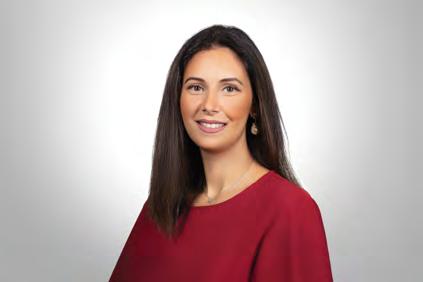
“The show is sector-agnostic, which means that businesses of any sector and any size are welcome to apply for the chance to raise funds, and promote their businesses on a regional platform. Seize this opportunity to accelerate the growth of your business with strategic guidance from reputable investors. Don't wait for the opportunity; grab it.”
“Season 2 is available for free viewership on the region's first and biggest video-on-demand platform, Shahid. Watch how other entrepreneurs pitched their businesses, and how negotiations went. Be inspired by the success stories that resulted from the show. Be humble, and learn. This is a chance for you to gain insight into what happens between investors and founders behind closed doors- every pitch has a lesson to be learnt. Listen carefully, and reflect it in your journey.”
“A good entrepreneur is daring. A lot of successful entrepreneurs took the leap of faith, and started their own business even though it was scary. With hard work and persistence, you could be one of the entrepreneurs receiving funding to grow, and become a regional and global success.”
“When you register for Beban, if you are shortlisted, you undergo an intensive training bootcamp, where you get to develop and hone your business skills in many areas, from financial modeling and planning, to expansion plans to even pitching. This means that your business might be subject to changes, and that is something you need to be open to, especially given the fact that if you do receive an investment through the show, you will need to welcome investors who will help your business grow.”
THE 2023 EDITION OF THE E-BUSINESS AWARDS, which was staged by Entrepreneur Middle East on March 13, 2023 in the UAE at Sofitel Dubai The Palm, celebrated the individuals and enterprises making their presence felt on the MENA region’s digital business landscape.
As a celebration of the digital excellence seen in the region over the course of the last 12 months, the E-Business Awards 2023 was an invite-only event that was staged with the support of Numai Real Estate and Fluidmeet.
A production of BNC Publishing, the media house behind Entrepreneur Middle East, the E-Business Awards 2023 saw some of the brightest names in the regional business landscape be recognized for their contributions to the ecosystem at large.
The full list of winners of the E-Business Awards 2023 is listed below:
MOST INNOVATIVE E-SOLUTION OF THE YEAR STELLA STAYS
E-PAYMENT SOLUTION OF THE YEAR QASHIO
F&B PAYMENT SOLUTION OF THE YEAR SPADES
BLOCKCHAIN SOLUTION OF THE YEAR REELSTAR
B2B PLATFORM OF THE YEAR RE.LIFE
DIGITAL LUXURY PLATFORM OF THE YEAR WATCHBOX

SERVICE PLATFORM OF THE YEAR WASHMEN
OTT PLATFORM OF THE YEAR T OD
E-SOLUTION PROVIDER OF THE YEAR AESERVER.COM
DIGITAL HEALTHCARE PROVIDER OF THE YEAR MYASTER
E-COMMERCE SERVICE PROVIDER OF THE YEAR SHAPES DEFINED

E-BUSINESS OF THE YEAR IDEALZ
DIGITAL BANK OF THE YEAR MBANK
PAYMENTS GATEWAY OF THE YEAR TELR
PROPTECH COMPANY OF THE YEAR YARDI
FINTECH COMPANY OF THE YEAR TAP PAYMENTS
ECOSYSTEM ENABLER OF THE YEAR ZAIN GREAT IDEA
INVESTOR OF THE YEAR ASTRA TECH
DISRUPTOR OF THE YEAR IDEALZ ONE

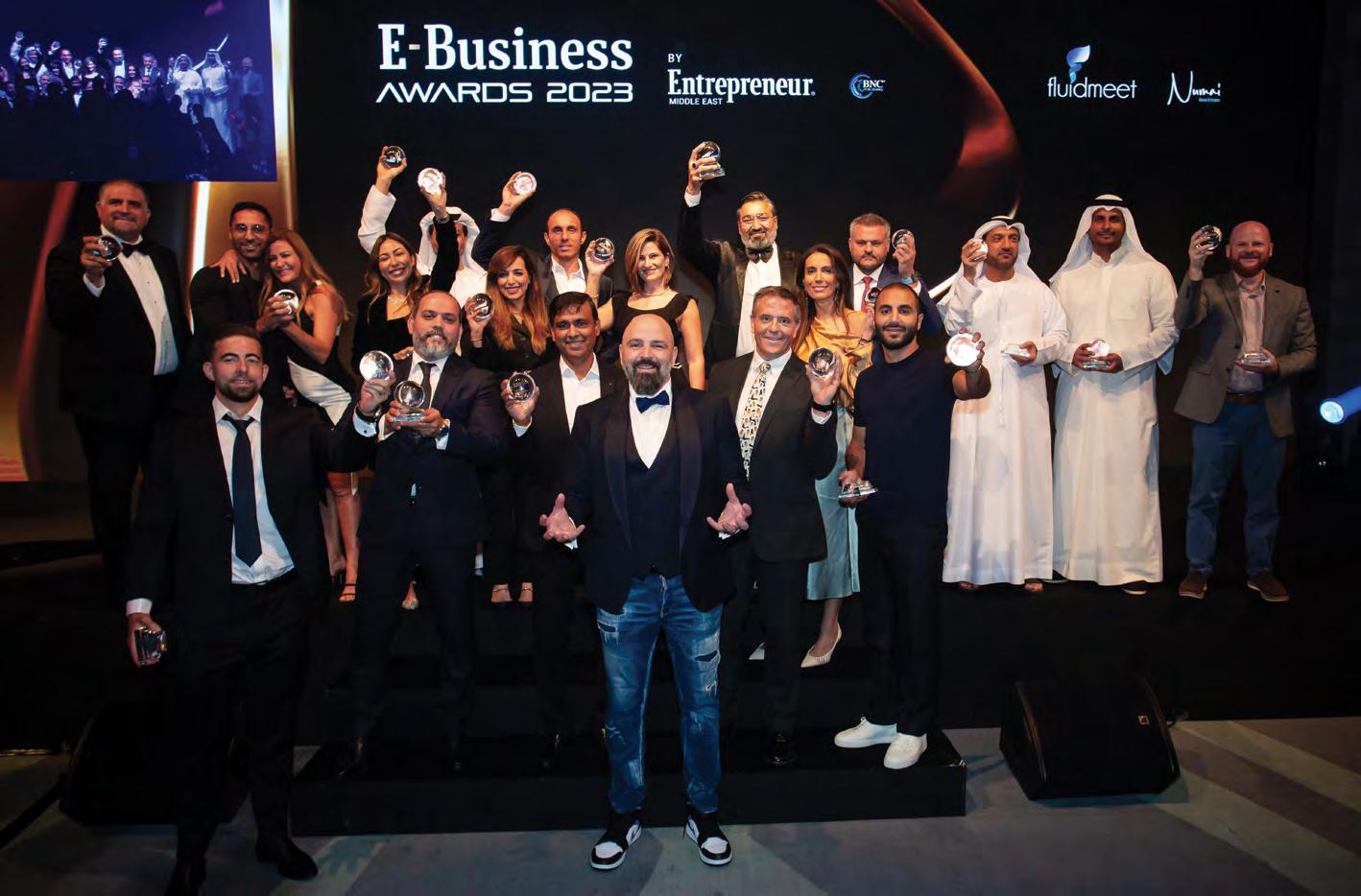







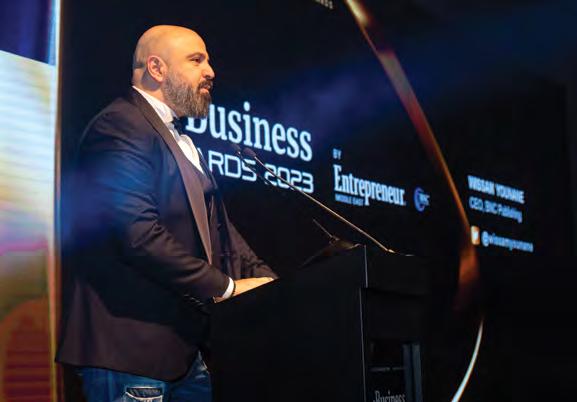




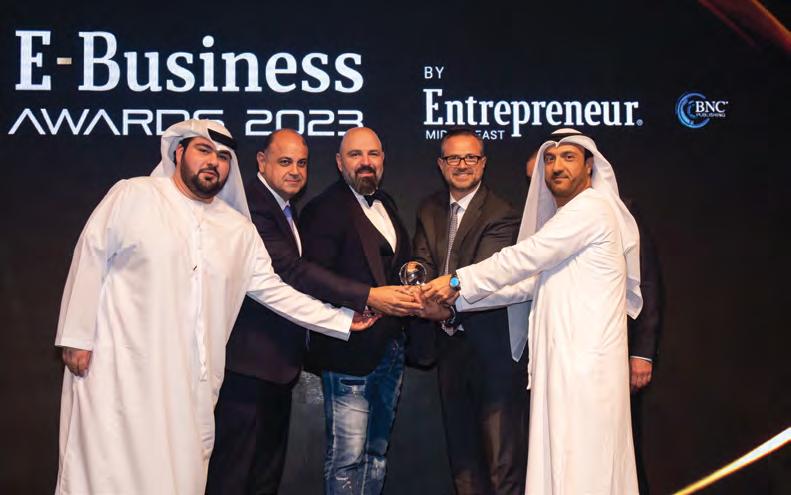










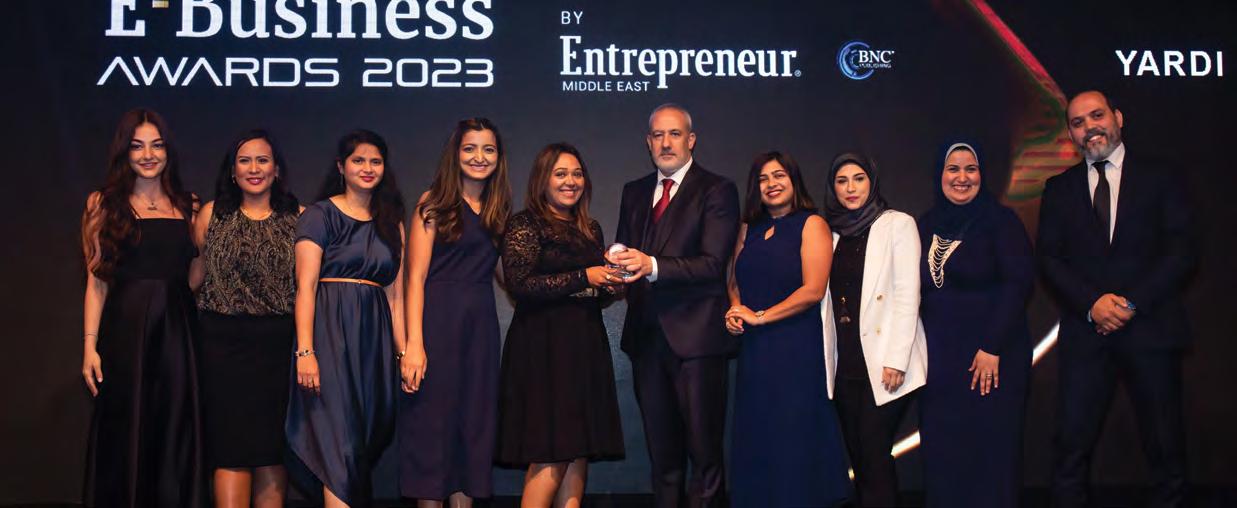











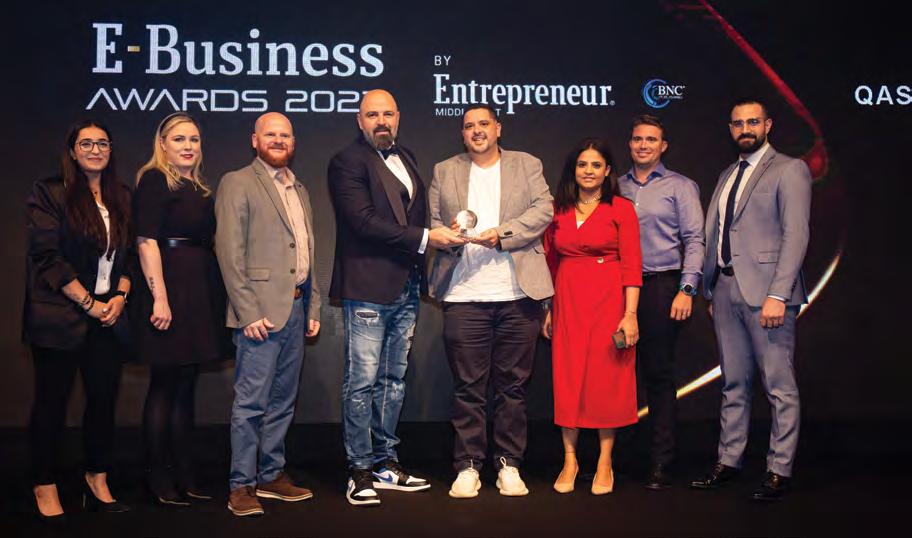


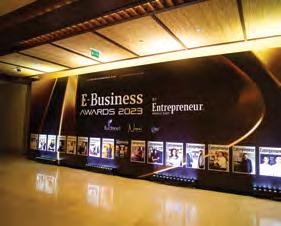

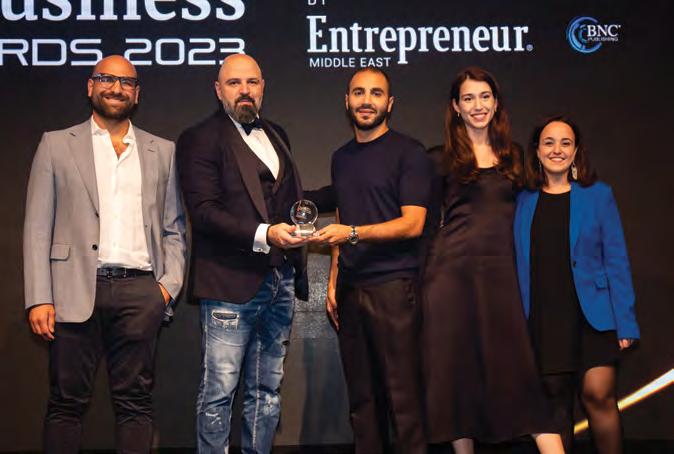
Beta Lab, a venture capital fund and co-creation studio focused on deep tech startups, launches in Riyadh
BETA LAB, a venture capital and co-creation studio dedicated to fostering deep technology startups, has launched in Saudi Arabia with the support of the KSA Ministry of Investment, Future Investment Initiative (FII) Institute, KBW Ventures, and a number of other global partners.
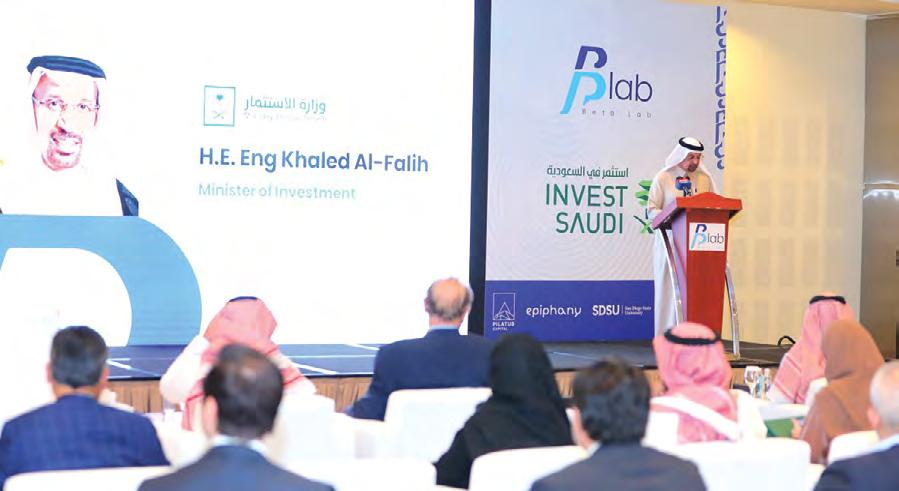

Led by CEO Abdulrahman Alolayan, Beta Lab is set to provide a range of services in the realms of product development, business development, capital, and more, to help entrepreneurs turn their innovative ideas into successful businesses. In addition, the studio’s team of experienced professionals will work closely with each startup to help them navigate the unique
challenges of the startup lifecycle.
“We are excited to launch Beta Lab, and to play a role in shaping the future of the startup ecosystem in Saudi and the region,” said Alolayan, who was also the Founding CEO of Taibah Valley and Dammam Valley. “Deep tech has the potential to change the world in countless ways, and we believe that by providing the resources and support that these startups need, we can help them achieve their full potential.”
Beta Lab’s launch in Riyadh saw the attendance of a range of dignitaries from the KSA ecosystem including H.E. Khalid Al-Falih, Saudi Arabia Minister of Investment, Rakan Tarabzoni,
COO of FII Institute, and KBW Ventures founder and CEO HRH Prince Khaled bin Alwaleed, who is known as the region’s first venture capitalist to invest in deep technology startups.
Commenting on the studio’s launch, H.E. Al Falih said, “Beta Lab’s launch is in line with the Kingdom’s Vision 2030, which aims to diversify the economy, and support the growth of innovative startups. We are confident that the studio’s focus on deep technology will bring significant value to the Kingdom’s startup ecosystem, and help drive economic growth.”
Beta Lab aims to attract global startups to Riyadh in order to capitalize on the Kingdom’s strategy to act as a regional hub for global talent, while also fostering local potential with a homegrown launchpad. It is currently accepting applications from entrepreneurs and startups from around the world through its website. blab.com.sa

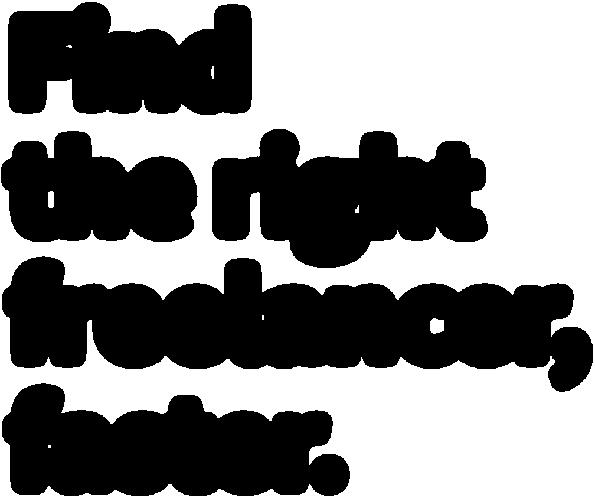

 BY AUDEMARS PIGUET STARWHEEL
BY AUDEMARS PIGUET STARWHEEL



















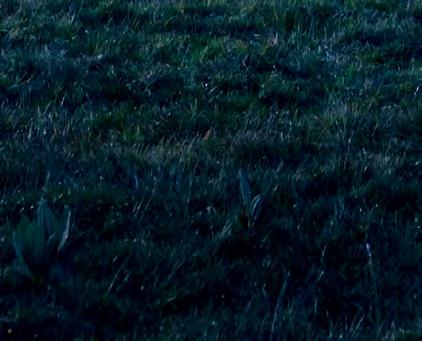


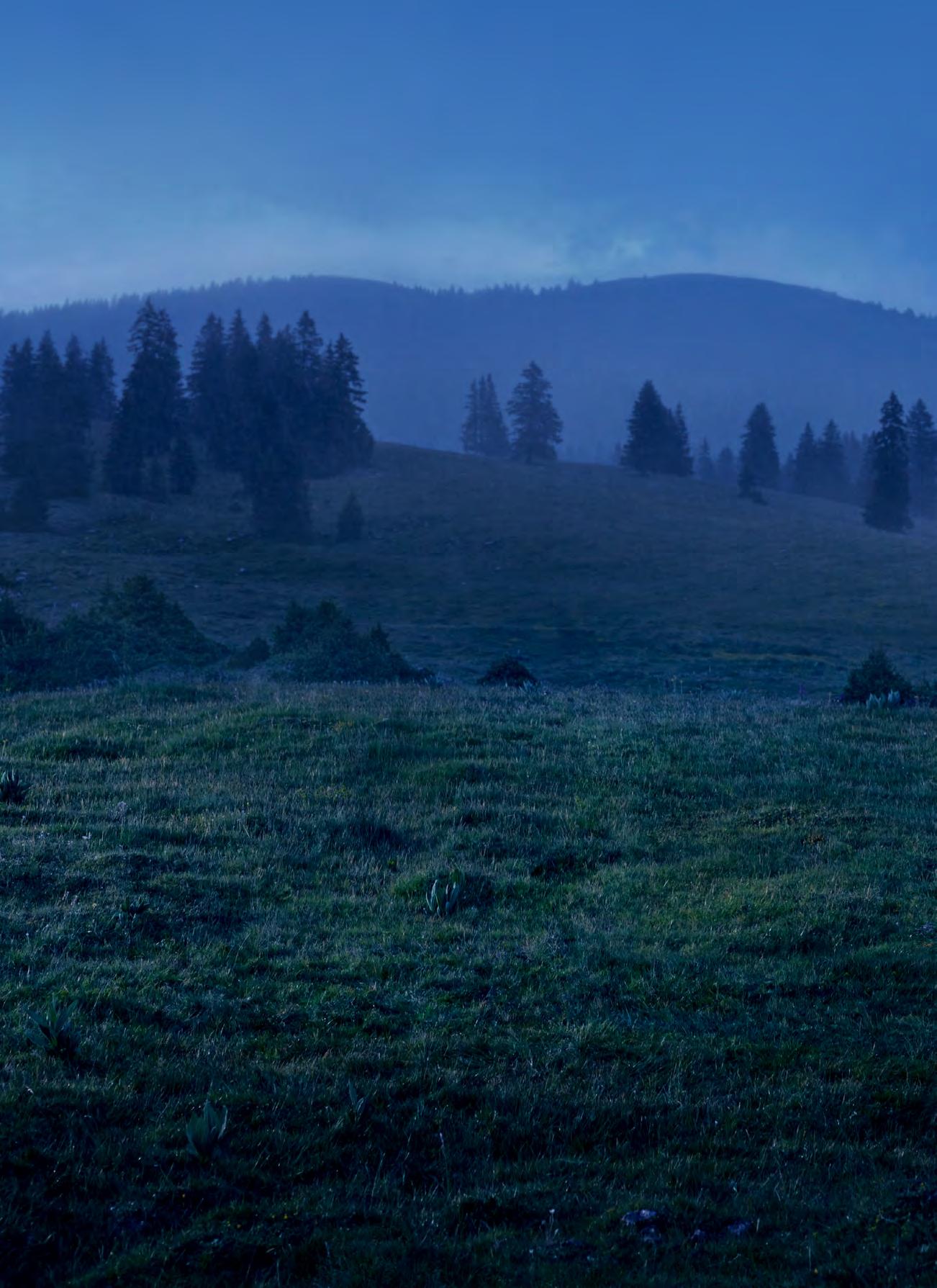 CODE 11.59
CODE 11.59